The most wild ride in my soccer career (so far)It started on Facebook (where all good stories begin) in late 2017. I had just arrived back to my hometown Ottawa, Canada after playing overseas in Portugal. When scrolling through my feed, I found a post that had a picture of an acquaintance posing with the owner and coach of a new club in downtown Las Vegas. I was immediately enthralled by the idea of playing for a brand new USL team in such a cool looking city. I commented “you guys looking for a right back or what?” and the rest was history… … That I’ll explain right now 😉 TL;DR A recap of my time in LV + Thanks to everyone for the memories. 💙 TrialsThere was a 2-day open-trial weekend that lead to a 3-day invitational trial. If you did well on Day 1, you'd be invited to Day 2. If you were selected on Day 2, you’d be allowed to join the next three days of training with pre-selected players who were already invited by the coaching staff. It turns out I had to join the squad the old fashioned way, starting with proving my worth in the open trials. I knew they were looking primarily for local talent which started as a cool initiative by the club that guaranteed a spot on the team to a local player. It didn’t matter to me that I wasn't a local. I was ready to take on all of the 700+ hopefuls who had signed up for their shot at a pro contract so I booked my own flight (one-way) and an Airbnb (with a quirky cat lady). 😸 - Funny enough, when I went to the soccer complex the day before the tryouts, I ended up finding an abandoned dog who I later adopted, but that’s another crazy Vegas story for another time. - I showed up the first day in the first group of the day, I ended up being the first name called from the list of players who made it through to the second day of trials. WooHoo, got a free t-shirt! To be honest, there were a lot of amateur players there who weren’t anywhere near professional quality, so it was no surprise that I made the cut. To be even more honest, some of the fine folks I had talked to there had told me some (Vegas) things like, “I quit drinking last week and now I’m ready,” and “I don’t know why I didn’t make it,” while walking to his car smoking a cigarette. 🤦♂️ Day 2 was more pleasurable due to the ~100 players who were of better quality. After playing a small-sided game like a boss, A handful of great players were chosen. I FINALLY got that invitation to the 3-day. I even got upgraded from my airbnb to a snazzy hotel room just off the strip with players from all over. #swanky 💁♂️ Day 3-5: These three days went by quickly, lots of training with the coaching staff to see if we fit into their system/style of play. On the last day, we brought it all together in an 11v11 scrimmage full field. I honestly don’t even remember how I did (maybe it was all a blur because I was so deeply focused? Haha). All I know is that I ended up being selected with a portion of players to come to preseason and fight for a spot on the starting 11. So I was able to enjoy my Christmas holidays back at home with family, but come January, It was all Viva Las Vegas. 🎰🎰🎰 PreseasonGetting set up in Vegas was a cinch. I’ve moved from Germany to Australia to Portugal to some other awesome places, so I was settled pretty quickly. I arrived to Vegas with my partner, Chany, and although our apartment had a fireplace that I didn’t quite understand, it was a perfect accommodation with all the amenities we needed. 🏠 The team ate, trained, worked out, and went to sleep over and over again, not always in that order! It was a fun time of getting to know my (predominately Mexican) teammates and fun figuring out that my 2 credits of Spanish lessons in college were holding up about as well as you’d think. (🌮 el taco es bueno... see what I mean?) It was great meeting the likes of (former wonderkid) Freddy Adu, Mexican National team player Joel Huiqui, and Daigo Kobayashi. They've all been so kind and supportive as teammates, so I owe them a shout out. Thanks guys! 🙏 We were fortunate to have three preseason games lined up against MLS teams and I was selected to play against Montreal Impact in the first ever match for Las Vegas Lights Football Club, in front of a sold out stadium (more on the fans soon) in downtown Las Vegas. I'm super grateful be a part of that history for the city of Las Vegas! (More on games below) EventsI loved being integrated into the Las Vegas community. It really has been special getting to know all about this quirky city beyond the stereotypical Strip and Casino lifestyle that I once misjudged from afar. #sorry The community itself has been so welcoming and supportive to both the team and myself. They are passionate and really love the game of soccer. I could see why Brett kept saying that this was a soccer city. Come to a home match and you’ll find out. It’s a crazy Vegas party behind the goal. The supporters know how to hold it down (Shout out to the Electric Co. + Luz e fuerza!). 🎉🎉🎉 Outside of the stadium I think I’ve lead the team in the stat of “most events attended” (on field I believe I hold the “most interceptions per minute played” stat). Both are great stats, but my heart says the former is more important. I love the community so much that I’ve openly volunteered to attend as many events as I’m able to. Here are a few of my favs: The team shorts reveal at the Plaza hotel was a priceless way to kickstart the season. Pealing off a robe on stage with traditional Showgirls on one side and the Mayor of the City on the other was a true Vegas experience. And yes, you heard me right, we had a shorts reveal before our jersey reveal. Has anyone done that before? Don’t think so. Throughout the rest of preseason we held two jersey reveals, the first was at Zappos HQ in a packed theatre. This is where we unveiled the flashy home kit from top to bottom. The greatest highlight from the kit, another first for Vegas, was the smiley face emoji located on the inside of the shirt. A great way to celebrate goals and challenge the Man at the same time. It’s an automatic yellow for over-celebrating, which doesn’t seem to bother the club. We also got a brief chance to connect with season ticket holders which felt amazing to see the faces of those who would be there to have our backs and cheer us on all season long. Our away kit reveal was a more intimate setting. Players were hanging out and interacting with the fans. It was great! Two players got body painted jerseys, I got a matching (temp.) tattoo with a fan, and we all grew another step closer as a team and community. By this point I was already in love with the city and the people in it. The locals were so warm and friendly, which was nothing like the thoughts I had about the city. That’s what you get when you stop assuming and start to open up and talk to new people, you tend to learn how things actually are! One of my favorite meet-and-greets was visiting over a hundred young Las Vegas Soccer Association players that were training. I had a few moments to speak to a group and I got inspirational on them! (To check that out click here!) The kids were great and very receptive. Many wanted to get scholarships or go pro one day, and knowing there’s a pro team in their city makes me really happy because it gives them something tangible to strive for. That can really be the difference in a kids journey to professional soccer. When I was a kid, there was no pro soccer in my city, no real pathway and I bet that’s the cause for a lot of players giving up. I truly hope these kids can hold on to their dreams and I’m grateful to be a part of that new spark (or more fitting, “light”) that just might ignite the desire in the future generation of pros in this city. Vegas also has a sweet event called First Friday where local artists, musicians, you name it, meet up in the Arts District to have a fun night of events, showcases, and shenanigans. The Lights had their own stand there and so I’d volunteer to go to as many as possible. I think I hit 5 months in a row (February to June!) and was able to meet locals, prospective fans, and lots of kids. Admittedly, it was also my day of the month to get in a good “cheat” meal for dinner and I LOVED one food truck in particular called Monti’s Smokehouse BBQ. Their pulled pork was my go to, but it was really the people who ran the biz who were just such an authentic representation of kind-spirited Las Vegas locals that really brought me back. (Shout out to Kelsie and Ryan of Monti’s + everyone I got to hang out with and meet) I even got a taste of the fun local Mexican community by heading to the swap meet at Broadacres Marketplace to promote the team! They know how to get down with their banda music! I felt really good about connecting with a completely different culture especially knowing that our team would be represented by a primarily hispanic team and supported by hispanic soccer fans in the city as well. It was nice building the hype for the season while taking pictures and signing autographs for the line up of cool people. It was touching to spend time visiting the children’s hospital with the team. We all had a really sense of quiet calmness after interacting with and visiting a ton of kids who could use a pick me up. I think our visit was really appreciated and welcomed. We also gave out a ton of toys, Lights FC goodies, and autographed photos, it was a small gesture to let patients and families know we cared. I’m pretty sure the experience gave us all perspective on what we were put on this earth for. It made me want to do more to use my platform as a professional athlete to not only help young players improve in soccer, but to inspire change so that we can all connect and spread love. No photos here, but it was also sweet getting to wear clown noses with everyone on the team.🤡It was a fun + humbling experience to say the least. The team photoshoot was also a great time. It was unlike the traditional photoshoots of the previous teams I've played on. We got to attend the neon lights boneyard that features old signs from casinos and other businesses and we took a photo that really showed the motto of "we do things differently." with an amazing backdrop, scattered players posing in different ways,.. And yes, the team llamas Dolly and Dotty. 🦒🦒(<- giraffe emoji... Can someone please contact apple and get a llama one made ASAP. Thanks.) Other than that, I can't forget the Harley Davidson sponsorship event! I got to introduce Cash the Soccer Rocker with a couple teammates. That was a rockin' experience. Cash is our team mascot. He's a "Hispanic Elvis Presley with a little Johnny Cash" who rides into games on a motorcycle. I also think this was my first encounter with fans (and future friends) Ricky and his son Xavier, so a big shout out to them! (Photo below!) I got the honor of being in a Findlay Toyota/John Barr Commercial that ended up airing during Lights FC halftime breaks as well as on TV during World Cup games (So technically I was a part of the world cup... technically). I was both a stunt double for John's fancy footwork and also make a cameo as the teammate who crosses John the ball to score his epic bicycle kick. John is an awesome dude, and his team at Findlay Toyota is great, so shoutouts to them as well! It was a top 10 Vegas experience for sure, even though I had to cross the ball a bazillion times with a bruised foot a day before my game. #soccerprobz I haven't seen the commercial posted online anywhere so if you find it, share it in the comment section below! All I have is this snapshot below! I also have to give a shoutout to Ben Gotz at LVRJ (interview here), Helen Yee of LVSportsNetwork (one short interview here), Steph & Melissa from GirlChatSports (Podcast here) and all other media peeps for the fun talks! It was also cool meeting Ethan/Tazia of NuWu Cannabis Marketplace (the first ever dispensary sponsor for a pro soccer team). Shoutouts on shoutouts to all! Okay okay, last shoutouts, I swear! Big thanks to all the Lights people for the good times! Front Office + everyone else (Ryan, Maddie, Rachel, Andrea, Luis) + Thanks for been such awesome people along the way! Thank you to the owner + coaches for everything you've done to support my football journey. The time and effort you put into the club is really admirable. I sincerely appreciate the good experiences I've gained under your management. If you ever need something, please don't be afraid to reach out. GamesIt's been a season of firsts, so I wanted to highlight a few from games: As I mentioned, I played against MLS side Montreal Impact in the first ever (pre-season) match for Las Vegas Lights in front of a sold out Las Vegas stadium. 🏟 I played my first full 90 minutes in my first professional game in the USL. It was the first win in team history, we won 3-2 (!!) and we scored the fastest goal in league history for an expansion team. (My proud dad likes to let people know that I stole the ball from the opponent and started the play for the first goal. 🤓 Lol) I played in the first ever home home season match which was also the first Silver State Cup match vs. Reno 1868 FC, we tied 1-1. (My proud mom came down and watched the game with my aunt which was awesome!) I also started for the teams first ever US Open Cup match vs. FC Tuscan, which resulted in a 4-2 win! This was also the teams first win with us scoring 3 or more goals, which meant the players on the field got a $100 poker chip from Plaza Hotel. (Since I don't gamble, I used it on food. :) That's a pretty full recap of my positive experiences in Las Vegas. (Did I miss anything?) Hope you enjoyed reading as much as I enjoyed living it! Thanks to all, -Z p.s. Special shoutout to my family, to Robert my first friend in LV, to my social media supporters, to my sponsors, to L.E. the team photographer for the majority of these shots, and to future pro footballer Gio + his family for their support. Love you guys!
7 Comments
I had a fun time in the LV Review-Journal Studio with Ben Gotz. We talked about football, travel, social media, and Freddy Adu. :)
Since I can't embed the video, click the photo or check it out here! Cheers, Z p.s. Stay connected here: Instagram: @zak.drake Twitter: @zakdrake2 Facebook: /zakdrakecoaching (Interview link here: https://www.reviewjournal.com/sports/lights-fc-soccer/lights-out-defender-zak-drake-discusses-social-media-game/) For those who haven't noticed the changes around the old ZDC website, we're slowly but surely having a facelift! As I once said on instagram... It looks like I practice what I preach because I've been developing this coaching website in a painfully slowly step-by-step fashion. Luckily, it's paying off, as the changes are becoming more noticeable, and more professional. The first change (as you can see by the quote art) is the brand color! I've gone with a nice obsidian blue and mint green color-way. It's deep, dark, and intense with the blue, but open, fun, and kind of boho with the green. Me likey. You'll start seeing these color changes reflected on all of my social media platforms: Next up, we have a brand new logo! It's something I'm really proud of. I've been working with the team at from12yards since December to make this and it's turned out so much cooler and better than anything I would have imagined. They are the kings of abstract soccer artwork, and I'm so happy to have their support developing this logo. Check it out: We have so much more in store, so stay tuned on whichever social media channel you prefer.
I can't wait to share it all! -Z New Signing alert! I've signed with Las Vegas Lights FC for the 2018 season! Lights FC are a brand new club in the USL. Learn about the team here: www.lasvegaslightsfc.com Check out the video to learn how I got here: Let's do this! #vivalights
They say a picture is worth a thousand words...
This season has been a great for myself personally, I've developed and grown as a footballer in many ways. I've become more tactically aware, more technical, and my German is better too. I was chosen to be in the starting 11 throughout the season (playing fullback). This photo was taken of the only game I didn't start on the pitch. It's not a glorious action shot, but if you look closely, you can see something glorious in itself. Take a look at me sitting there, where my eyes are focused, how engaged my body language is, how focussed I am. Even though I wasn't on the field, I was using the opportunity to study the game from the bench. I watched the players in my position. I watched their movements, their decisions, how they interacted with the collective group. I watched the opponents and picked out which of them were most dangerous on the ball, which were fastest, which formation they played as a team; Scanning, identifying, preparing. It's not something every player does, but since I'm invested in my career, it's part of the discipline. The key take-away: Every moment is a choice, you can choose to sit back and be passive or you can create opportunities for growth. If you really want to achieve something, this is important. Patience is important too, but don't forget to do what you can with what is within your control. When your chance comes, you'll be ready for it. -z I was recently asked by the father of a soccer player, how could his son make the most of his training, and it catalized this list of my top ideas about starting out a pro career as a young Canadian (or american). Check it out! Hi Zak, Here's my best response: 1. Training + Player Development | Become EliteThis is the basics. Train hard. This guy in the video has a journey + philosophy REALLY similar to me + he's implemented it/achieved it/packaged it to share with others. I'd suggest following him, getting his training programs (I have, and it's really good), and working diligently on developing the mindset it takes to be a professional soccer player such that doing those training programs helps you improve incrementally and allows you the resiliency to develop. 2. Mentorship | ProPerformance & Coach.meDepending on your budget, something like this could be really beneficial: https://properformance.guru/ A football mentor can share their authentic experiences, encourage personalized athletic development, and build valuable skills into your life! If you want to work with Pro Performance, I can give you a 10% discount to that! *do it on a budget at https://www.coach.me/ with a habit or goals coach. 3. Personal Growth | OPTIMIZE.meMy side biz (that I've worked for for 3+ years) has lots of content that could be used for soccer players (it's geared towards anyone looking to improve their lives.. it's really really good stuff. 10,000 members and counting!) ---> www.optimize.me/membership Start by checking out all the content tagged for sports, mental toughness, and peak performance. Investing in yourself is the best thing you can do. We also have an app and lots of free content (sample below). 4. Network Like Crazy ...then network some more | FieldooThis industry is messed up. get in the faces of people who need to see you, get your story told, get your buzz up, find a way to connect to pro team academies, push for it. At least reach out to local clubs, coaches, parents with connections. You don't want to miss out on an opportunity you don't know is out there. Agents on www.fieldoo.com could help with that.. not sure about age related situations. It's free to try anyway. 5. Add Experience | TOVO AcademyA. It's vital for resume building. Many places won't look at your without a good resume. So getting national teams, trials with pro club academies etc. are all good to add to your resume. Start early, you don't want to be 25 while trying to build your resume. B. Growing and learning from smart people/coaches (Like this). TOVO has a summer program and other camps run by Todd Beane. He's a friend (and he's Johan Cruyff's son in law) get good coaches, get on good teams, and play as much as possible. Let me know if you want an intro to Todd. 6. Get Footage + Get Tactical | SoccerSpotlight & YTAStart compiling video footage for your games (see Matt at SoccerSpotlight for help). This will help with your resume, but it will also help you do something that very VERY few players (even at the pro level) take advantage of. A personal tactical analyst will help you LEAP over the competition by working with you on your situational tactical development. I've worked with Loran at Your Tactical Analyst and have grown a TON from it. I highly rec. working with someone on your football intelligence. (If you want to work with Loran or Matt, I might be able to get you a discount!) 7. Trial and Error | Don't give upMaybe it makes no sense but failure = success. It really does. Get a thousand doors slammed in your face before you even consider quitting. I like many other people have been told no more times than they can remember, but there's always a yes somewhere. So take your No's as Not yets. 8. Community = Key | Get Gritty friendsIf you want to be successful, whoever you're hanging with, they better want the same thing for you or themselves. Support is super helpful. People who want to lose weight together are more likely to do it. so with that in mind, if he wants to push for it, find other players that do too and get close to them. 9. What did I miss? What's your best reccomendation?Check out the updates for off season workouts that I'm doing during my time in Bali.
----> https://www.facebook.com/ZakDrakeCoaching/  *This picture was taken on my phone when leaving Finland on my way to Sweden. I thought it would be an appropriate header for this post as I was literally sailing through the ‘unknown’. I didn’t know where I was going or what would lie ahead but I was up for it, and knew that there was the possibility for something amazing to happen.* Every year footballers face uncertainty. Uncertainty in where they will be playing, will they be playing regularly, what income will they be bringing in, where they will be living, career progression… the list goes on. Uncertainty is one of the greatest fears of footballers and we attempt to avoid it at all costs. It drowns us in distress, worry, and anxiety. Many of us will exchange growth for certainty and security in our careers, meaning that we rather stay where we are or even digress in order to avoid the risk of uncertainty when trying to further our career. The irony is that the profession we have chosen is not one of security. There are so many uncertain scenarios that can arise, that there is no way to foresee the future. In a book called ‘The Fighter’s Mind‘, Ben Rosenfeld compares the life of an artist to the life of a fighter. He refers to them as people who want to do something different; a job without security. He says: Don’t let the uncertainty bring you anxiety; let that uncertainty generate excitement. If you cannot make the switch from anxiety to excitement, then this job is not for you. You won’t make it - Ben Rosenfeld (The Fighter’s Mind) There is not a way to avoid uncertainty in our profession so we must not only learn how to deal with it, but also learn how to manipulate it to drive us forward. So lets get into it… Psychology has proven that our brain is wired to impulsively look at uncertainty with a negative bias. What happens when uncertainty arises, is we tend to see the loss-side of the equation. The voices in our head start yelling out all the worst-case scenarios that might lie ahead. This outlook is what fills us with these uncomfortable feelings that paralyses our ability to progress and deal with the situation we are in. For these reasons, uncertainty has this bad stigma attached to it, like it’s a horrible thing that you want to avoid. But this all stems from the way we have been taught to perceive it. If you look at what uncertainty actually is and detach it from yourself as a separate entity, you can see that uncertainty brings directly the opposite of what it is perceived to be. According to Maslow’s Hierarchy of Needs, ‘Safety’ and ‘Security’ are categorised as basic necessities for human life. However, there is a misconception that safety and security is gained through certainty, and that’s why uncertainty has a bad onus. So let’s look at what ‘certainty’ actually is… The search for security is an attachment to ‘the known’. What is ‘the known’? ‘The known’ is our past. The only thing we know for certain is what has already happened to us. So by searching for certainty you will become a prisoner of your past, and there is no evolution in that; it is the death of creativity, thought, and growth. So essentially the search for security is an illusion, and the solution lies in the wisdom of uncertainty. Uncertainty means stepping into the unknown, where the possibilities are endless. This generates excitement, adventure and mystery. It opens the gates to pure creativity and freedom that allows us to orchestrate and create the manifestation of our future. I know that sounds very philosophical and spiritual, which can be difficult to relate to. However, there are many ways to rewire the mental impulse of seeing all the negatives that can come from uncertainty and instead look at the endless possibilities that arise from it. The first thing you need to do is detach yourself from the scenario and look at it with an analytical approach. Give yourself a clear understanding of what the situation is; get as much information as possible about it. Speak to other people who have been in similar scenarios and seek insight from them. By acquiring as much information as possible it helps you understand the situation you are in, and it will in turn bring you clarity on how to deal with the situation proactively. You then can start to ask yourself questions like: What opportunities lie here? What doors have opened that were once closed? How can I turn this predicament into something amazing? There will be endless possibilities that enter your mind and now the uncertainty, that once drew fear and anxiety, now draws excitement, belief, hope and positive expectation. This will have a direct effect on your preparation for what’s coming, and when the opportunity does arise, you will be the upmost prepared mentally and physically to drive into it with momentum that you generated in the process leading up to it. I hope to be clear in recognizing the distinction between striving for your long-term goal and being over-consumed by it, as these will naturally overlap by staying on course. It’s important to know the direction that you are heading and where you see yourself in 5 or 10 years from now; but you don’t need to know ‘how you’re going to get there’, in fact, it’s actually irrelevant. Remember that there are many ways to get to your ultimate goal, and when faced with uncertainty this actually means you are on the right path. Because there will be many opportunities that will arise and you never know which one of them can take you to a completely different level, then if you stayed on the secure path that you were on. By keeping your eyes on the bigger picture, it will bring you comfort and wisdom knowing that the journey must go on and continue for you to get to where you are meant to be. I personally, like to look back at past experiences where the road was looking unclear, and looking back there has never been a time where I have been completely helpless, where I had nothing and I was doomed. An opportunity always arose and the journey continued and for the most part, it’s always been a better one then I previously had. You must trust the journey, and believe that it will always look after you. When you experience uncertainty, you know you are on the right path. Because in order to grow and progress you need to take risks which naturally brings uncertainty. The worst thing you can do is worry and get stressed. You don’t need to have a rigid idea of what’s going to happen to you in the coming future, because by attaching yourself to this idea it will prevent you from seeing the endless range of possibilities that can lie ahead. The best thing you can do is stay ready and prepared to give yourself the best chance to make the most of the opportunity that is on the horizon, even though you may not see it yet! “When nothing is certain, every is possible” |
| Position 1 = Goalkeeper Role & Responsibility: Keeping the ball out of the net! Being involved in the play as far as organizing the team. Making sure players are marked up especially from the defensive side of things. Being the commander/general. Being a great shot stopper, being brave. Commanding your box. Dealing with crosses. Having good distribution with hands and feet, playing it out of the back in different ways, accurately. But most importantly *keeping the ball out of the net!* Position 5 & 6 = Right + Left Center backs Role & Responsibility: Usually winning headers in the air from goal kicks Coming through winning the ball, winning tackles Organizing the team make sure everyones compact, and marked up. Blocking shots. Making tackles Doing most of the defensive work for the team (this is expected of you by the team) Filling in another position from time to time (all players may have to do this and we will talk about it below!) Position 2 & 3 = Right + Left Fullbacks Role & Responsibility: #1 role is having a defensive mindset But in todays game, having a lot more freedom to get up the field and be more adventurous and getting in the attack (It's now more expected of you to do it) Having a good engine Getting up and down the line. Coming in and joining the attack. Filling space when wingers step inside and create space on the outside Crossing into the box accurately + well Defensively, stopping crosses coming into the box Being quick on your feet Being good on 1v1 defending situations Having an appetite for the game because when you're tired and you make a run and don't get the ball, you have to get back and defend! (Are you a fullback? Check out this post for some great Fullback Tactics!) Position 4 & 8 = Right + Left Defensive Midfielders Role & Responsibility: Having a bit more focus on defensive aspects and responsibility in this formation (as opposed to the traditional 4-4-2, which was getting up and down the field in a box-to-box way... a lot of running.) Getting up into the attack sometimes to join, but the primary job is to protect the backline. Cleaning up any passes in front of that defensive line. Doubling up with defenders if balls are played into strikers. Winning the ball back. Blocking passes. Covering playmakers. Winning tackles in the midfield. Playing a very important role on the offensive side. Moving the ball. Keeping the rhythm of play going. Keeping good distribution. Picking up ball from fullbacks. Switching the play. Playmaking. Keeping the ball moving. Always showing. Giving options. Moving the ball. Coming back and receiving the ball for switching it to the other side of the field. Playing lots of 2-touch football. Keeping things ticking. | Position 10 = Attacking Central Midfielder Role & Responsibility: Usually Playing with a lot of freedom to go where ever you want. Scoring goals and creating chances. Getting on the ball as often as possible (it's expected of you). Finding little pockets of space between defenders (everyone wants to find you). Trying to get the ball to feet. Getting shots on goal. Following up chances. Playing through balls to wingers making runs or to the strikers feet and joining the attack. Getting into the box, whenever theres an opportunity to score. (if you're waiting around outside, sitting in the midfield, you wont be very valuable to your team) Acting in attacking roles as almost a second striker while getting involved into the play. (you just have a bit more defensive responsibility). Getting back and help out (especially against a very good team, its almost a 4-5-1 on the defensive side of things) Getting back to defend. Playing combos and getting forward and attack on the offensive side. Position 7 & 11 = Right + Left Wingers Role & Responsibility: Getting lots of width. Get the ball out wide. Whipping crosses into the box . Cutting inside. Creating goal scoring opportunities for yourself. Playing combinations. feeling a lot of freedom (all of the attacking players) . Having freedom to change positions (example: with total football, all players can cover all positions. If a fullback steps up, a winger can come back and cover for him until he can get back and fill his spot) Interchange positions. Switching with the other winger. Not feeling restricted to stay outside. Coming inside sometimes. Stepping up, while the striker drops. Making sure you get back into your spot and help out defensively. Taking players on in the right positions. Having the job of feeding the striker. Getting goal for yourself. Helping out defensively Helping double up with your fullback Winning balls with your fullback and countering quickly Position 9 = Striker Role & Responsibility: Scoring goals. Putting the ball in the net. Being clinical in front of the net. Scoring at least 1 out of 2 chances. Being sharp with your finishing. Anytime a ball is whipped into the box, being that player getting on it . Wanting to be making the run to the front post. Peeling off making a run to the back post. Showing at the top for a cut back. Always being an option. Always making good runs into space. Playing as a target so show for the ball. Get the ball to feet and holding the ball up really well. Playing the ball off to your teammates. Making give and go's. Being able to keep possession (if you're the only guy up there, when the ball is played up to you you have to if you lose it, then your team can't get out of trouble). Being a good target . Being strong. Shielding off defenders and playing the ball off. Spinning and making runs between center backs or full backs and trying to get on that ball. Most of all scoring goals and creating goals for your teammates! Yes, you need to be greedy, but be smart, if you have two guys on you, maybe the best option is to pass and give them the goal scoring opportunity. |
Okay so you might have a preference of where you like to play, and you might not be given the opportunity in that position. If your coach isn't giving you that chance, you need to understand that playing different positions is one of the best things for your growth. If you want to be a striker, there might only be 1 in the formation (like the one above!). You may get put in a fullback or center back, it's not the end of the world, it's a positive thing if you really think about it! It's an opportunity to grow in a different way, its an opportunity for you to get your chance, because these positions are all really important. So maybe you can't make it as the best striker on your team, you can still strive to be the best fullback of the league. It's great for your development. #ownit
If you're stuck asking yourself which position should you play, the best way to answer is by first looking at your skills, and then asking which position you *want* to play. Then, look at what skills are required of that position and start developing those skills. Communicate with your coach and let them know you're working on _____ (insert important skill) and if there's ever an opportunity, you'd love it.
Ways to improve:
If you're stuck asking yourself which position should you play, the best way to answer is by first looking at your skills, and then asking which position you *want* to play. Then, look at what skills are required of that position and start developing those skills. Communicate with your coach and let them know you're working on _____ (insert important skill) and if there's ever an opportunity, you'd love it.
Ways to improve:
- Learn from the Pros! Watching professional soccer is a great way to see where to be, when to move, and how to execute the type of runs that you would be making in a game. (Hint: don’t watch the ball during the game, watch the player who is in your position on the pitch)
- Talk with your coach! Asking your coach doubles as a way to both improve your performance and it shows your coachability, which goes a long way. (Hint: Most players don’t approach the coach for a 1-v-1 chat, lead the way, and your teammates might follow the example you set. When everyone is on the same page, that’s when you start to win championships)
- Get out there and train! #crushit
2. Team Strategy
The tactics of a team will determine the strength of a team. It's the bedrock of the playing style and philosophy of play that your team will put into action on the pitch. You definitely need to understand your role on the field (Read or re-read Factor #1 on Positioning if you have to!) and in addition to that, you've got to figure out where your teammates are, what their roles are, and then how you can best serve your team while keeping in mind the positioning of yourself + teammates. You might want to go back to that blog and read ALL of the positions, so you get a feel for what each player is doing on your team.
Work as a unit + trust one another
Whether you're a part of the defensive or offensive unit (More details on these to come!), you're going to have to work together and work for each other and work off one another. Metaphorically, in a functional relationship, you have to be able to depend on your partner when you need them, and you can lean on him/her when times are hard for you and you're struggling. On the pitch you've got to have faith in your teammate. You need to be able to trust your unit to be there for you, whether that's giving you an outlet pass when you have the ball, or telling you about an opponent behind you.
More importantly, YOU need to be that support for your teammates. You need to help lift them up while pushing them to peak performance. This involves being aware of your teammates strengths and weaknesses, and assisting them in these areas when needed.
You think Navy SEALs or Marines don't know their squads positioning + attributes? They have that stuff memorized, so that when they're in combat, they almost look like they're one body, moving fluidly, to efficiently + effectively achieve their mission. #SempriFi
If you don't know your team's tactics, it's a good time to sit down with your unit + coach to clarify your objectives, so that everyone is on the same page. You don't want to wait until you're out on the pitch wondering why your teammate isn't doing the same thing as you or watching your team bombing up long balls when you thought you were supposed to be keeping it on the deck.
Once you have individual strength + awareness, then you can build that up with your unit, and then combine with your entire team to have a totally synched up squad who not only KNOWS what it's teammates are doing, but also TRUST one another to do it. Those are the fundamentals of team strategy + understanding.
Work as a unit + trust one another
Whether you're a part of the defensive or offensive unit (More details on these to come!), you're going to have to work together and work for each other and work off one another. Metaphorically, in a functional relationship, you have to be able to depend on your partner when you need them, and you can lean on him/her when times are hard for you and you're struggling. On the pitch you've got to have faith in your teammate. You need to be able to trust your unit to be there for you, whether that's giving you an outlet pass when you have the ball, or telling you about an opponent behind you.
More importantly, YOU need to be that support for your teammates. You need to help lift them up while pushing them to peak performance. This involves being aware of your teammates strengths and weaknesses, and assisting them in these areas when needed.
You think Navy SEALs or Marines don't know their squads positioning + attributes? They have that stuff memorized, so that when they're in combat, they almost look like they're one body, moving fluidly, to efficiently + effectively achieve their mission. #SempriFi
If you don't know your team's tactics, it's a good time to sit down with your unit + coach to clarify your objectives, so that everyone is on the same page. You don't want to wait until you're out on the pitch wondering why your teammate isn't doing the same thing as you or watching your team bombing up long balls when you thought you were supposed to be keeping it on the deck.
Once you have individual strength + awareness, then you can build that up with your unit, and then combine with your entire team to have a totally synched up squad who not only KNOWS what it's teammates are doing, but also TRUST one another to do it. Those are the fundamentals of team strategy + understanding.
3. Sight vs. Vision
There's a difference between seeing something, and looking at something. When you see things, there is an air of passivity in the action, however when you're looking at something, it's more deliberate, your eyes get into focus, and your brain is activated on the conscious level. This is the difference I'm talking about when I differentiate between Sight and Vision. Sight involves a reaction to the surroundings, while Vision involves awareness, perception, and knowledge. Vision involves anticipation.
In football, it's really important to constantly be looking around the field, scanning for information that you can use to your advantage in the current or next play. This ability to read the game is called anticipation. Anticipation is a mix of prediction and expectation. Developing this handy tool will help you in all areas of your game. You'll be able to make smarter choices while attacking or defending, you'll be a step ahead of opponents (or with a hyper-developed level of anticipation, you'll be 5-steps ahead of your opponents *cough* Messi *cough). Whoever you are, and whichever position you're in, you've got to start building your anticipation muscle and understand that the game of football is a thinking game, and though it's great to get wrapped up in the joy of the game, or play in the moment, to be truly great, you've got to start playing ahead of the game.
A simple example of this (out of soccer context) is the world of chess. You'd never see a chess master just move pieces around a board for fun, without thinking or strategizing. Every move is deliberate, thought out, meticulous.
Trusting your skill and instinct is huge, yet you don't want to solely rely on that. You've got to be involved mentally, stay sharp, and make the right moves on the pitch.
You can do this by figuring out where you want the ball to go (where you want to pass it) before you've even received it. This means getting your head up, on a swivel, and periscoping your available outlets prior to getting the ball.
Another way to flex this muscle, in a defensive situation, is to read your opponent with the ball. Practice looking at their body language and playing style. If you're the first defender approaching a player, and you learn the person is right foot dominant, you can close him down more effectively, or force him to his weaker foot.
If you're not directly closing the player down (let's say you're a defender) you can read if his hips are opening up to strike the ball over the top, so you could gain an extra second in tracking back, or getting a tackle in, or getting your foot in the way, etc. There's a lot you can do with that split second.
Vision takes you to the next level of football. It's what all the pros are doing at nearly every moment of the game. Watch for this as you study your favorite players, and once you pick it up, and start practicing, you'll start to feel like the game slows down for you, and you'll be ready to take on more challenges.
In football, it's really important to constantly be looking around the field, scanning for information that you can use to your advantage in the current or next play. This ability to read the game is called anticipation. Anticipation is a mix of prediction and expectation. Developing this handy tool will help you in all areas of your game. You'll be able to make smarter choices while attacking or defending, you'll be a step ahead of opponents (or with a hyper-developed level of anticipation, you'll be 5-steps ahead of your opponents *cough* Messi *cough). Whoever you are, and whichever position you're in, you've got to start building your anticipation muscle and understand that the game of football is a thinking game, and though it's great to get wrapped up in the joy of the game, or play in the moment, to be truly great, you've got to start playing ahead of the game.
A simple example of this (out of soccer context) is the world of chess. You'd never see a chess master just move pieces around a board for fun, without thinking or strategizing. Every move is deliberate, thought out, meticulous.
Trusting your skill and instinct is huge, yet you don't want to solely rely on that. You've got to be involved mentally, stay sharp, and make the right moves on the pitch.
You can do this by figuring out where you want the ball to go (where you want to pass it) before you've even received it. This means getting your head up, on a swivel, and periscoping your available outlets prior to getting the ball.
Another way to flex this muscle, in a defensive situation, is to read your opponent with the ball. Practice looking at their body language and playing style. If you're the first defender approaching a player, and you learn the person is right foot dominant, you can close him down more effectively, or force him to his weaker foot.
If you're not directly closing the player down (let's say you're a defender) you can read if his hips are opening up to strike the ball over the top, so you could gain an extra second in tracking back, or getting a tackle in, or getting your foot in the way, etc. There's a lot you can do with that split second.
Vision takes you to the next level of football. It's what all the pros are doing at nearly every moment of the game. Watch for this as you study your favorite players, and once you pick it up, and start practicing, you'll start to feel like the game slows down for you, and you'll be ready to take on more challenges.
4. Decision Making
Do you really want to put yourself in the spotlight as a player? Do you want to show that you're a great player?
Then, listen up. A SUPER secret to taking your game to the next level is advancing your proficiency in your ability to make optimal decisions.
Woah, what's that really mean?
Simply put ---> Get *really* good at making the best choice.
It's easier said than done, but I'll break down some ideas you can obtain this soccer holy grail.
For growth in this area, here are some of the best tips:
Study professional football
I've said it before and I'll say it again, learn from the pro's! Study the players who are top class. Learn how they tick. When you're watching a game, ask yourself (and try to answer) why do the players make certain passes and other actions on the ball? Why did they make that decision? In answering this, you'll be putting yourself into the role of the player, and in a sort of empathetic way, you're developing your brain to understand the critical thinking it takes to make the best choices.
Mistake your way to success
Trial and error is a great way to learn, since you're training more than you play in games, that would be a awesome time to work on your decision making. If you make a poor decision, like playing a high risk pass, try to figure out which alternatives could have been better. Did you have support behind you to retain possession? Did you forget to scan the other side of the field where a player was open/making a run? Learn from your mistakes, and and you'll quickly become more successful in choosing the best option.
Add restrictions ---> +/-
If you reduce the number of touches you're allowed to have on the ball, it forces you to make decisions quicker (if you don't, you're screwed! hehe). Start thinking about what to do before you have the ball. Being able to anticipate the play (see Sight vs. Vision again!) will help you destroy your opponents. As a bonus, playing quicker will improve your touch too! As a visual cue, you can write +/- on your wrist during training, and if you see it, you'll know to "add less" touches.
Then, listen up. A SUPER secret to taking your game to the next level is advancing your proficiency in your ability to make optimal decisions.
Woah, what's that really mean?
Simply put ---> Get *really* good at making the best choice.
It's easier said than done, but I'll break down some ideas you can obtain this soccer holy grail.
For growth in this area, here are some of the best tips:
Study professional football
I've said it before and I'll say it again, learn from the pro's! Study the players who are top class. Learn how they tick. When you're watching a game, ask yourself (and try to answer) why do the players make certain passes and other actions on the ball? Why did they make that decision? In answering this, you'll be putting yourself into the role of the player, and in a sort of empathetic way, you're developing your brain to understand the critical thinking it takes to make the best choices.
Mistake your way to success
Trial and error is a great way to learn, since you're training more than you play in games, that would be a awesome time to work on your decision making. If you make a poor decision, like playing a high risk pass, try to figure out which alternatives could have been better. Did you have support behind you to retain possession? Did you forget to scan the other side of the field where a player was open/making a run? Learn from your mistakes, and and you'll quickly become more successful in choosing the best option.
Add restrictions ---> +/-
If you reduce the number of touches you're allowed to have on the ball, it forces you to make decisions quicker (if you don't, you're screwed! hehe). Start thinking about what to do before you have the ball. Being able to anticipate the play (see Sight vs. Vision again!) will help you destroy your opponents. As a bonus, playing quicker will improve your touch too! As a visual cue, you can write +/- on your wrist during training, and if you see it, you'll know to "add less" touches.
These tips aren't going to just help you automatically become better at making decisions. It's not an overnight thing. In the long run, over time, your training to make optimal decisions will add up and improve your tactical awareness and ability as an individual.
What can you commit to today? Will you watch more football + study it? Will you check in with yourself after making mistakes? Can you force yourself to become quicker in your decision making?
If you want to take your game from an amateur level, to top class, decision making is a key factor. Work on it, and you'll get better!
What can you commit to today? Will you watch more football + study it? Will you check in with yourself after making mistakes? Can you force yourself to become quicker in your decision making?
If you want to take your game from an amateur level, to top class, decision making is a key factor. Work on it, and you'll get better!
If you want to develop your soccer career, and need help getting to the next level, go to ZakDrakeCoaching.com
The more I meet aspiring soccer players, the more I see the mindsets of amateurs. The thing is, if you want to be a professional, you've got to get your attitude, perspective, priorities, and life in order. To REALLY be successful in this industry, there are going to be a lot of failures, a lot of people saying no, and a lot of frustration and disappointment. How you respond to these, will ultimately reflect in the longevity of your career. Some people just don't know how to take the pressure, but there are some SUPER important hacks to setting up your pathway so that you stay on track.
There's no magic pill to greatness, but here's the closest thing. With just 5-10 minutes each morning, you can set yourself up the best possible way for an amazing day... week, month, year, game, season, LIFE! It's probably the most simple and effective way I've seen to boost your happiness levels. Even lazy people can get in on the action. Let dive in!
So there are basically 5 skills or abilities that distinguish a happy + successful person:
To remember them just think that you'll need to set the "S.T.A.G.E" for your happiness.
So how do you make sure you're stage is set? By rehearsing of course! When you pick a time to practice these things daily or even as little as 3 times per week, you can significantly improve your happiness levels.
Once you create this little ritual, it doesn’t take a whole lot to start seeing measurable differences (I'd say a few weeks - months of consistent daily practice!). By having a template to work from, you can effortlessly rock it.
That's where The Morning Ritual comes in. I created it to help you develop your mindset for positivity in about 5 minutes. It can't get much simpler than that. It's a really cool journal that you fill out each day. It's laced with scientifically proven tricks to boost your happiness!
Save the page, fill it out one time each morning, and you'll be on your way to rocking your happiest life ever!
-z
There's no magic pill to greatness, but here's the closest thing. With just 5-10 minutes each morning, you can set yourself up the best possible way for an amazing day... week, month, year, game, season, LIFE! It's probably the most simple and effective way I've seen to boost your happiness levels. Even lazy people can get in on the action. Let dive in!
So there are basically 5 skills or abilities that distinguish a happy + successful person:
- Savoring the moment; not dwelling on past or future
This involves being able to ground yourself in the present moment. Being able to be mindful of the here and now brings you the opportunity to feel a sense of happiness for being at the point in your life where you currently are. This type of presence + mindfulness is also really useful for your mid-game performance, especially when you've scored an own goal, and you can easily let that negative image out of your mind, so that you can get back into the game without feeling terrible. You can brush off the crap, and focus faster! - Thanking others; cultivating gratitude
Being grateful is a HUGE, scientifically proven, way to improve your life. When times are hard, it's so beneficial to be able to see the silver-linings, and that just might be the reason why you don't hang your boots up after a tough year. Training your brain to see the good in life and to be thankful for it also helps you savor the moment! - Aspiring to achieve meaningful goals; having a plan and sticking to it
Happy people have goals. If you want to be successful in soccer, setting great goals, whether they're S.M.A.R.T goals, or Stretch goals, or whatever system you use to plan + crush your milestones, will help boost your amount of happiness + sense of achievement in your life! There's lots of momentum that comes after you hit your targets en route to your big dream. - Giving; unselfishly helping others
Much of life boils down to one word, "Service." Whether you're working at a shoe store, helping a family member move, or giving advice to a friend, you've got the opportunity to help others. When we do this, there are ripples of kindness that are created in the world and that kindness turns to happiness for anyone who is a part of it. (See 10 facts that prove helping others are key to happiness here) - Empathizing with others; Putting yourself in their shoes
Making it less about you and more about others helps you , build connections with them and since we as humans, thrive from connection, it turns out to boost your happiness (health and all of that good stuff!)
To remember them just think that you'll need to set the "S.T.A.G.E" for your happiness.
So how do you make sure you're stage is set? By rehearsing of course! When you pick a time to practice these things daily or even as little as 3 times per week, you can significantly improve your happiness levels.
Once you create this little ritual, it doesn’t take a whole lot to start seeing measurable differences (I'd say a few weeks - months of consistent daily practice!). By having a template to work from, you can effortlessly rock it.
That's where The Morning Ritual comes in. I created it to help you develop your mindset for positivity in about 5 minutes. It can't get much simpler than that. It's a really cool journal that you fill out each day. It's laced with scientifically proven tricks to boost your happiness!
Save the page, fill it out one time each morning, and you'll be on your way to rocking your happiest life ever!
-z
There are 5 areas worth talking about and I’ll relate each of them back to the Football Fitness terminology and back to the 4 qualities that an ideal performance (X-X-X-X-X) requires.
- Quickness (Agility)
- Acceleration (Speed)
- Stamina (Endurance)
- Power (Strength)
- Mobility (Flexibility)
- *Bonus* Heart Rate Control + Fatigue
Football Quickness/Agility is the ability to move freely and quickly in different planes of movement. You might be going in one direction, and suddenly move into a different one without losing speed, strength or balance. This requires a lot of coordination and multi-plane movement training.
In a game, Agility helps you move and react to the flow of the game. Training this also improves your footwork speed.
As I mentioned in the intro, throughout a game, the ideal performance from a(n aspiring) professional footballer is to be able to do these 4 things:
1. Have High Quality Actions (Big X’s)
2. Maintain High Quality Actions (Keeping big X’s throughout the whole game, 90 minutes)
3. Having More Actions (per minute)
4. Maintaining More Actions (per minute)
So the goal is —> X - X - X - X - X - X - X
Agility training will be more directly related to having High Quality Actions. You're sharper, and more able to perform your soccer actions like dribbling at pace, making runs in between players, and tackling an opponent for the ball.
Non-soccer specific drills that isolate this area of fitness include: Ladders, Hurdles, and Cone drills, including a ball when possible makes it more similar to a game and therefore more accepted as a football fitness exercise.
Check out this 9 year old stud go through some amazingly effective Speed, agility, and quickness (SAQ) drills for inspiration in your own training.
In a game, Agility helps you move and react to the flow of the game. Training this also improves your footwork speed.
As I mentioned in the intro, throughout a game, the ideal performance from a(n aspiring) professional footballer is to be able to do these 4 things:
1. Have High Quality Actions (Big X’s)
2. Maintain High Quality Actions (Keeping big X’s throughout the whole game, 90 minutes)
3. Having More Actions (per minute)
4. Maintaining More Actions (per minute)
So the goal is —> X - X - X - X - X - X - X
Agility training will be more directly related to having High Quality Actions. You're sharper, and more able to perform your soccer actions like dribbling at pace, making runs in between players, and tackling an opponent for the ball.
Non-soccer specific drills that isolate this area of fitness include: Ladders, Hurdles, and Cone drills, including a ball when possible makes it more similar to a game and therefore more accepted as a football fitness exercise.
Check out this 9 year old stud go through some amazingly effective Speed, agility, and quickness (SAQ) drills for inspiration in your own training.
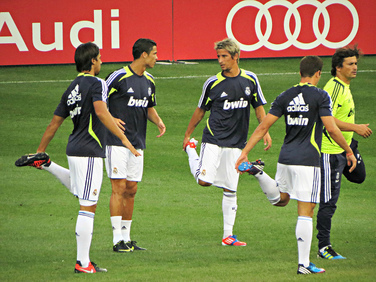
Fitness is a huge part of the professional game. If you want to play at a higher level, you’ll need to work on becoming the most “fit” player on your team, and perhaps the fittest your league.
Throughout time and modern technology, we’ve gotten better and better at breaking down fitness into different categories to focus on with laser like focus. We have highly specialized trainers coming in and creating programs for players, and coaches are leaning towards the education of such trainers to decide what will help their team perform at a high level. This has it’s pros and cons because although it’s great for making improvements in different aspects of your physical self, i’d argue that it actually takes you away from what is truly important in the realm of football, which is playing the game.
The more time you spend outside of the pitch working on these aspects, means the less time you’ll have to train them on the pitch, focussing on developing everything that comes along with game-like situations.
I’ve got a few tricks up my sleeve to get you focussing on football first (<—super important) and secondly improve in the most important areas of your physical fitness. This will give you plenty of time to train effectively and efficiently on the field, and spend your time off the field making marginal gains towards your success.
We’re going to have to set the stage so you’ve got 100% clarity on how we’re going to achieve this.
Throughout time and modern technology, we’ve gotten better and better at breaking down fitness into different categories to focus on with laser like focus. We have highly specialized trainers coming in and creating programs for players, and coaches are leaning towards the education of such trainers to decide what will help their team perform at a high level. This has it’s pros and cons because although it’s great for making improvements in different aspects of your physical self, i’d argue that it actually takes you away from what is truly important in the realm of football, which is playing the game.
The more time you spend outside of the pitch working on these aspects, means the less time you’ll have to train them on the pitch, focussing on developing everything that comes along with game-like situations.
I’ve got a few tricks up my sleeve to get you focussing on football first (<—super important) and secondly improve in the most important areas of your physical fitness. This will give you plenty of time to train effectively and efficiently on the field, and spend your time off the field making marginal gains towards your success.
We’re going to have to set the stage so you’ve got 100% clarity on how we’re going to achieve this.
Football Fitness
“People often define fitness in non-football language. If you use non-football words when you talk about fitness, automatically you get non-football exercises to train fitness” - Raymond Verheijen
Raymond Verheijen is a Dutch conditioning expert who specializes in keeping fitness in the realm of football. That means that he doesn’t use fitness jargon (words like: aerobic, plyometric, VO2 max et cetera). Instead, he uses football specific actions to define football fitness. It’s a really practical way of looking at things, and though it might take a little while to get used to, it’s really beneficial for any dedicated player to understand.
To simplify, most people consider fitness as something outside of soccer, and when this happens, the training for fitness ends up being exercises outside of the sport. If a coach separates soccer training from fitness, they easily risk overloading the players and injury or burnout could occur (and if that doesn’t happen, the players risk wasting valuable time!)
Verheijen likes to combine football + fitness training so that they are one in the same.
My biggest take away from Verheijens theories of football fitness and periodization is this:
X - X - X - X - X - X - X
vs.
X -- X --- x ---- x ------- x
There are 4 qualities to this diagram.
The X’s represent the highest-quality actions — Playing at 100% making proper runs, passes, shots, tackles et cetera — and the smaller x’s are less high-quality actions (playing at 80%, 70% …).
The -’s represent time between actions: each dash could represent a 5 or 10 second moment) so the more dashes, the more time between actions.
Throughout a game, the ideal performance from a(n aspiring) professional footballer is to be able to do these 4 things:
1. Have High Quality Actions (Big X’s)
2. Maintain High Quality Actions (Keeping big X’s throughout the whole game, 90 minutes)
3. Having More Actions (per minute)
4. Maintaining More Actions (per minute)
So the goal is —> X - X - X - X - X - X - X
These fundamentals govern everything you do in football fitness. If you’re not working to approach this ideal state of being, you’re not dialing in your training in the areas that you need to.
Over the few weeks, I'll be rolling out the top tips I have on training Football Fitness.
There are 5 areas worth talking about and I’ll relate each of them back to the Football Fitness terminology and back to the 4 qualities that an ideal performance (X-X-X-X-X) requires.
No more running wasteful laps around a field, or doing biceps curls, we'll get into what will really be effective training for your football career.
Let's get this party started!
-z
“People often define fitness in non-football language. If you use non-football words when you talk about fitness, automatically you get non-football exercises to train fitness” - Raymond Verheijen
Raymond Verheijen is a Dutch conditioning expert who specializes in keeping fitness in the realm of football. That means that he doesn’t use fitness jargon (words like: aerobic, plyometric, VO2 max et cetera). Instead, he uses football specific actions to define football fitness. It’s a really practical way of looking at things, and though it might take a little while to get used to, it’s really beneficial for any dedicated player to understand.
To simplify, most people consider fitness as something outside of soccer, and when this happens, the training for fitness ends up being exercises outside of the sport. If a coach separates soccer training from fitness, they easily risk overloading the players and injury or burnout could occur (and if that doesn’t happen, the players risk wasting valuable time!)
Verheijen likes to combine football + fitness training so that they are one in the same.
My biggest take away from Verheijens theories of football fitness and periodization is this:
X - X - X - X - X - X - X
vs.
X -- X --- x ---- x ------- x
There are 4 qualities to this diagram.
The X’s represent the highest-quality actions — Playing at 100% making proper runs, passes, shots, tackles et cetera — and the smaller x’s are less high-quality actions (playing at 80%, 70% …).
The -’s represent time between actions: each dash could represent a 5 or 10 second moment) so the more dashes, the more time between actions.
Throughout a game, the ideal performance from a(n aspiring) professional footballer is to be able to do these 4 things:
1. Have High Quality Actions (Big X’s)
2. Maintain High Quality Actions (Keeping big X’s throughout the whole game, 90 minutes)
3. Having More Actions (per minute)
4. Maintaining More Actions (per minute)
So the goal is —> X - X - X - X - X - X - X
These fundamentals govern everything you do in football fitness. If you’re not working to approach this ideal state of being, you’re not dialing in your training in the areas that you need to.
Over the few weeks, I'll be rolling out the top tips I have on training Football Fitness.
There are 5 areas worth talking about and I’ll relate each of them back to the Football Fitness terminology and back to the 4 qualities that an ideal performance (X-X-X-X-X) requires.
- Quickness (Agility)
- Acceleration (Speed)
- Stamina (Endurance)
- Power (Strength)
- Mobility (Flexibility)
- *Bonus* Heart Rate Control + Fatigue
No more running wasteful laps around a field, or doing biceps curls, we'll get into what will really be effective training for your football career.
Let's get this party started!
-z
You can be great. And a great way to do this is by having a belief in yourself, and in your own word. Developing this mentality now, will put you ahead of those who just focus on skill or fitness alone.
Nowadays, I see a lot of people saying one thing and doing another. These people usually get wrapped up in themselves, or spun up in their own lies and it comes back to bite them in the form of missed opportunities or losing trust or credibility in the soccer scene. There's not much room for lying to yourself or others in your growth as a soccer player. Honesty is a huge game-changer.
Once you're honest, you'll have a sense of integrity with everything you do. People see that, and admire it. When it comes to training, if you say you're going to do something, you're more likely going to do it. Your integrity goes a long way and can even influence a coaches decision about whether or not he wants you on his team. If you don't have the attitude and focus in a professional way, you might be out of luck when it comes down to picking between two players.
Commit to Integrity, it's huge in the long run.
Here are the 5 commitments:
Nowadays, I see a lot of people saying one thing and doing another. These people usually get wrapped up in themselves, or spun up in their own lies and it comes back to bite them in the form of missed opportunities or losing trust or credibility in the soccer scene. There's not much room for lying to yourself or others in your growth as a soccer player. Honesty is a huge game-changer.
Once you're honest, you'll have a sense of integrity with everything you do. People see that, and admire it. When it comes to training, if you say you're going to do something, you're more likely going to do it. Your integrity goes a long way and can even influence a coaches decision about whether or not he wants you on his team. If you don't have the attitude and focus in a professional way, you might be out of luck when it comes down to picking between two players.
Commit to Integrity, it's huge in the long run.
Here are the 5 commitments:
1. I'm in control of my success.
Nobody, and I mean NOBODY is in charge of how good of a player you become, besides you. You are the be all end all of your improvement. You determine your future. You’re the one who chooses each and every decision that you make. Not your parents, not your friends, teammates, or coaches. You do. If you want to improve, the person to start with is in the mirror looking back at you. You are responsible for yourself. As you stand in front of a door that is locked, you have to realize that you are the key. You have to shape yourself accordingly in order to fit the lock and access your dreams.
At the end of the day, if you can commit to being in control of what you want, how much you want it, and how you’re going to get there. You'll be in control, and your development will soar.
At the end of the day, if you can commit to being in control of what you want, how much you want it, and how you’re going to get there. You'll be in control, and your development will soar.
2. I am the hardest working person on my team.
Be ruthless. You're not just supposed to go through the motions. You've got to make yourself known in this game, and that involves being the hardest worker on the pitch. Whether it's on in training or in games.
Playing in games is the #1 best way to improve your football actions. Yet there is a lot more to developing than being thrown into an 11v11 game and expected to improve. Work your ass off to train your decision making and execution.You have to train as efficiently (and as close to game situation) as possibly.
In this e-book, you’ll be given a run down of exactly which areas you’ll need to be developing individually.
If you can commit to spending time on the pitch in an efficient, effective way, your improvements will translate directly to your gameplay ability and help you to reach your potential. This is where you’ll start seeing changes.
Playing in games is the #1 best way to improve your football actions. Yet there is a lot more to developing than being thrown into an 11v11 game and expected to improve. Work your ass off to train your decision making and execution.You have to train as efficiently (and as close to game situation) as possibly.
In this e-book, you’ll be given a run down of exactly which areas you’ll need to be developing individually.
If you can commit to spending time on the pitch in an efficient, effective way, your improvements will translate directly to your gameplay ability and help you to reach your potential. This is where you’ll start seeing changes.
3. I train more consistently than anyone I know.
As long as you're putting in more effort than others, you know you're going to be growing at a quicker rate than the rest. Consistency is vital to long term success. Setting schedules and planning your development throughout the months, seasons, or year is a great way to stay on track.
Lots of low-level achievers in life, tend to miss out on this. They think that it gets boring when you stick to a schedule, or work on the same thing over and over. I promise you that there is bliss in repetition. When you commit to start having a sense of invariability in your training schedule, then you almost switch on to autopilot, and it doesn't take any willpower to roll out of bed and train. You'll grow MUCH faster than other players if you do this.
Lots of low-level achievers in life, tend to miss out on this. They think that it gets boring when you stick to a schedule, or work on the same thing over and over. I promise you that there is bliss in repetition. When you commit to start having a sense of invariability in your training schedule, then you almost switch on to autopilot, and it doesn't take any willpower to roll out of bed and train. You'll grow MUCH faster than other players if you do this.
4. I have a growth mindset.
A fixed mindset is where you think your talents, intelligence, or abilities are fixed traits, whereas a growth mindset is when you believe that you can adapt and improve yourself through diligent effort. Growth minded people embrace challenges, and don't let failure stop them from trying again next time. Set the bar, and if you fail, pick yourself up, time and time again, and learn new ways to master yourself, until you achieve it. The key is in learning here.
By committing to having this mindset, you are letting go of any beliefs about "I can't" by adding the word "...yet" and you'll be free from the dreaded fear of not being good enough and be able to develop in new, creative ways.
By committing to having this mindset, you are letting go of any beliefs about "I can't" by adding the word "...yet" and you'll be free from the dreaded fear of not being good enough and be able to develop in new, creative ways.
5. I improve at least 1% every day.
When you're developing as a player, you're going to want to be able to improve as soon as you can, but you can't really rush the process too much. Like cramming for a test, it might help out temporarily, but not in the long run.
You're better off putting little efforts in each and every day. It adds up (check out the post on the 1% Compound Effect for more)
If you can commit to being 1% better every time you wake up, whether that means choosing to eat a little better, run an extra sprint, take an extra few shots on goal, it ALL adds up.
You're better off putting little efforts in each and every day. It adds up (check out the post on the 1% Compound Effect for more)
If you can commit to being 1% better every time you wake up, whether that means choosing to eat a little better, run an extra sprint, take an extra few shots on goal, it ALL adds up.
If you can say these 5 things, and truly believe them, then you'll be in integrity with yourself, and you'll be on the road to achievement.
*If you can't say them and believe it. Ask yourself, what would you need to do in order to believe in your word. Are you ready to put the work in? Need help sorting it out? Let me know, I'm here to help!
-z
*If you can't say them and believe it. Ask yourself, what would you need to do in order to believe in your word. Are you ready to put the work in? Need help sorting it out? Let me know, I'm here to help!
-z
Here is Factor #4 of Tactical Intelligence
Do you really want to put yourself in the spotlight as a player? Do you want to show that you're a great player?
Then, listen up. A SUPER secret to taking your game to the next level is advancing your proficiency in your ability to make optimal decisions.
Woah, what's that really mean?
Simply put ---> Get *really* good at making the best choice.
It's easier said than done, but I'll break down some ideas you can obtain this soccer holy grail.
For growth in this area, here are some of the best tips:
Study professional football
I've said it before and I'll say it again, learn from the pro's! Study the players who are top class. Learn how they tick. When you're watching a game, ask yourself (and try to answer) why do the players make certain passes and other actions on the ball? Why did they make that decision? In answering this, you'll be putting yourself into the role of the player, and in a sort of empathetic way, you're developing your brain to understand the critical thinking it takes to make the best choices.
Mistake your way to success
Trial and error is a great way to learn, since you're training more than you play in games, that would be a awesome time to work on your decision making. If you make a poor decision, like playing a high risk pass, try to figure out which alternatives could have been better. Did you have support behind you to retain possession? Did you forget to scan the other side of the field where a player was open/making a run? Learn from your mistakes, and and you'll quickly become more successful in choosing the best option.
Add restrictions ---> +/-
If you reduce the number of touches you're allowed to have on the ball, it forces you to make decisions quicker (if you don't, you're screwed! hehe). Start thinking about what to do before you have the ball. Being able to anticipate the play (see Sight vs. Vision) will help you destroy your opponents. As a bonus, playing quicker will improve your touch too! As a visual cue, you can write +/- on your wrist during training, and if you see it, you'll know to "add less" touches.
Then, listen up. A SUPER secret to taking your game to the next level is advancing your proficiency in your ability to make optimal decisions.
Woah, what's that really mean?
Simply put ---> Get *really* good at making the best choice.
It's easier said than done, but I'll break down some ideas you can obtain this soccer holy grail.
For growth in this area, here are some of the best tips:
Study professional football
I've said it before and I'll say it again, learn from the pro's! Study the players who are top class. Learn how they tick. When you're watching a game, ask yourself (and try to answer) why do the players make certain passes and other actions on the ball? Why did they make that decision? In answering this, you'll be putting yourself into the role of the player, and in a sort of empathetic way, you're developing your brain to understand the critical thinking it takes to make the best choices.
Mistake your way to success
Trial and error is a great way to learn, since you're training more than you play in games, that would be a awesome time to work on your decision making. If you make a poor decision, like playing a high risk pass, try to figure out which alternatives could have been better. Did you have support behind you to retain possession? Did you forget to scan the other side of the field where a player was open/making a run? Learn from your mistakes, and and you'll quickly become more successful in choosing the best option.
Add restrictions ---> +/-
If you reduce the number of touches you're allowed to have on the ball, it forces you to make decisions quicker (if you don't, you're screwed! hehe). Start thinking about what to do before you have the ball. Being able to anticipate the play (see Sight vs. Vision) will help you destroy your opponents. As a bonus, playing quicker will improve your touch too! As a visual cue, you can write +/- on your wrist during training, and if you see it, you'll know to "add less" touches.
These tips aren't going to just help you automatically become better at making decisions. It's not an overnight thing. In the long run, over time, your training to make optimal decisions will add up and improve your tactical awareness and ability as an individual.
What can you commit to today? Will you watch more football + study it? Will you check in with yourself after making mistakes? Can you force yourself to become quicker in your decision making?
If you want to take your game from an amateur level, to top class, decision making is a key factor. Work on it, and you'll get better!
-z
P.S. When in doubt, here's a handy-dandy flow chart to help you make your decisions.
What can you commit to today? Will you watch more football + study it? Will you check in with yourself after making mistakes? Can you force yourself to become quicker in your decision making?
If you want to take your game from an amateur level, to top class, decision making is a key factor. Work on it, and you'll get better!
-z
P.S. When in doubt, here's a handy-dandy flow chart to help you make your decisions.
Here is Factor #3 of Tactical Intelligence
There's a difference between seeing something, and looking at something. When you see things, there is an air of passivity in the action, however when you're looking at something, it's more deliberate, your eyes get into focus, and your brain is activated on the conscious level. This is the difference I'm talking about when I differentiate between Sight and Vision. Sight involves a reaction to the surroundings, while Vision involves awareness, perception, and knowledge. Vision involves anticipation.
In football, it's really important to constantly be looking around the field, scanning for information that you can use to your advantage in the current or next play. This ability to read the game is called anticipation. Anticipation is a mix of prediction and expectation. Developing this handy tool will help you in all areas of your game. You'll be able to make smarter choices while attacking or defending, you'll be a step ahead of opponents (or with a hyper-developed level of anticipation, you'll be 5-steps ahead of your opponents *cough* Messi *cough). Whoever you are, and whichever position you're in, you've got to start building your anticipation muscle and understand that the game of football is a thinking game, and though it's great to get wrapped up in the joy of the game, or play in the moment, to be truly great, you've got to start playing ahead of the game.
In football, it's really important to constantly be looking around the field, scanning for information that you can use to your advantage in the current or next play. This ability to read the game is called anticipation. Anticipation is a mix of prediction and expectation. Developing this handy tool will help you in all areas of your game. You'll be able to make smarter choices while attacking or defending, you'll be a step ahead of opponents (or with a hyper-developed level of anticipation, you'll be 5-steps ahead of your opponents *cough* Messi *cough). Whoever you are, and whichever position you're in, you've got to start building your anticipation muscle and understand that the game of football is a thinking game, and though it's great to get wrapped up in the joy of the game, or play in the moment, to be truly great, you've got to start playing ahead of the game.
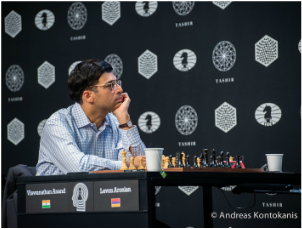
A simple example of this (out of soccer context) is the world of chess. You'd never see a chess master just move pieces around a board for fun, without thinking or strategizing. Every move is deliberate, thought out, meticulous.
Trusting your skill and instinct is huge, yet you don't want to solely rely on that. You've got to be involved mentally, stay sharp, and make the right moves on the pitch.
You can do this by figuring out where you want the ball to go (where you want to pass it) before you've even received it. This means getting your head up, on a swivel, and periscoping your available outlets prior to getting the ball.
Another way to flex this muscle, in a defensive situation, is to read your opponent with the ball. Practice looking at their body language and playing style. If you're the first defender approaching a player, and you learn the person is right foot dominant, you can close him down more effectively, or force him to his weaker foot.
If you're not directly closing the player down (let's say you're a defender) you can read if his hips are opening up to strike the ball over the top, so you could gain an extra second in tracking back, or getting a tackle in, or getting your foot in the way, etc. There's a lot you can do with that split second.
Vision takes you to the next level of football. It's what all the pros are doing at nearly every moment of the game. Watch for this as you study your favorite players, and once you pick it up, and start practicing, you'll start to feel like the game slows down for you, and you'll be ready to take on more challenges.
"See" you soon,
-z
Trusting your skill and instinct is huge, yet you don't want to solely rely on that. You've got to be involved mentally, stay sharp, and make the right moves on the pitch.
You can do this by figuring out where you want the ball to go (where you want to pass it) before you've even received it. This means getting your head up, on a swivel, and periscoping your available outlets prior to getting the ball.
Another way to flex this muscle, in a defensive situation, is to read your opponent with the ball. Practice looking at their body language and playing style. If you're the first defender approaching a player, and you learn the person is right foot dominant, you can close him down more effectively, or force him to his weaker foot.
If you're not directly closing the player down (let's say you're a defender) you can read if his hips are opening up to strike the ball over the top, so you could gain an extra second in tracking back, or getting a tackle in, or getting your foot in the way, etc. There's a lot you can do with that split second.
Vision takes you to the next level of football. It's what all the pros are doing at nearly every moment of the game. Watch for this as you study your favorite players, and once you pick it up, and start practicing, you'll start to feel like the game slows down for you, and you'll be ready to take on more challenges.
"See" you soon,
-z
Zak Drake
I love helping players optimize their soccer careers + lives through actualizing their potential.
Categories
All
Modern Football Fitness
Off The Pitch
Tactical Intelligence
Archives
June 2018
April 2018
February 2018
January 2018
May 2017
April 2017
February 2017
January 2017
September 2016
August 2016
June 2016
May 2016
April 2016
March 2016
February 2016
December 2015
November 2015
October 2015
September 2015
July 2015
March 2015
February 2015
January 2015
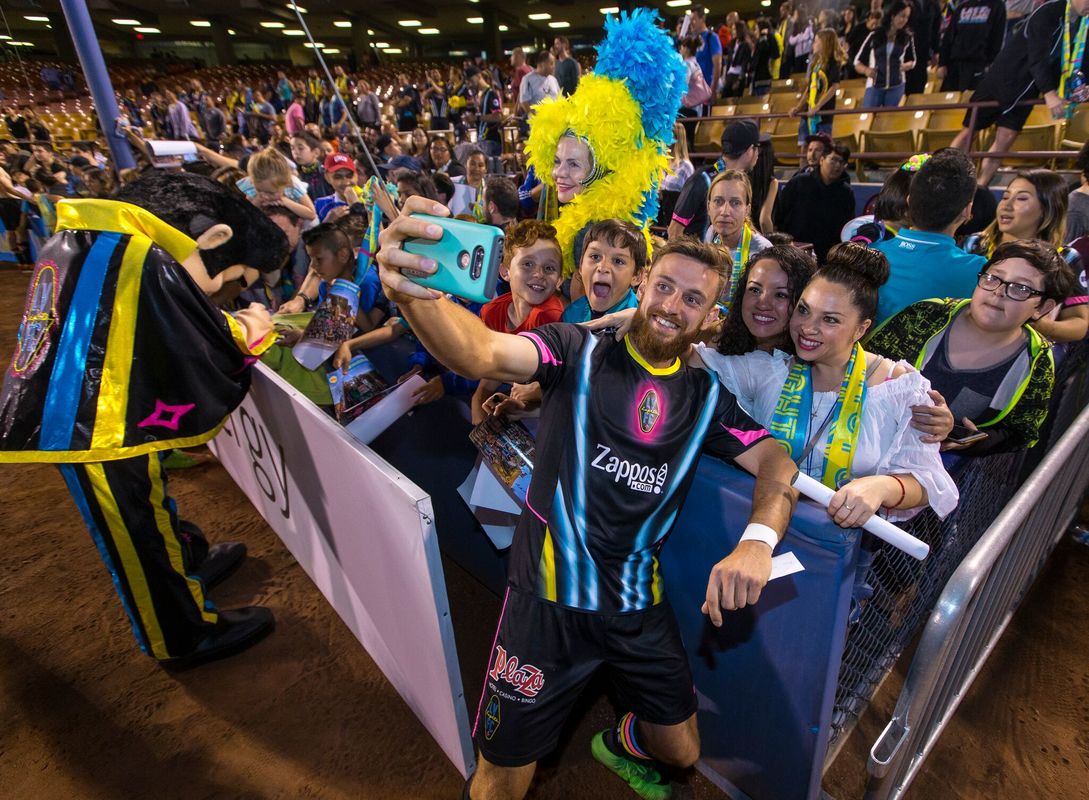
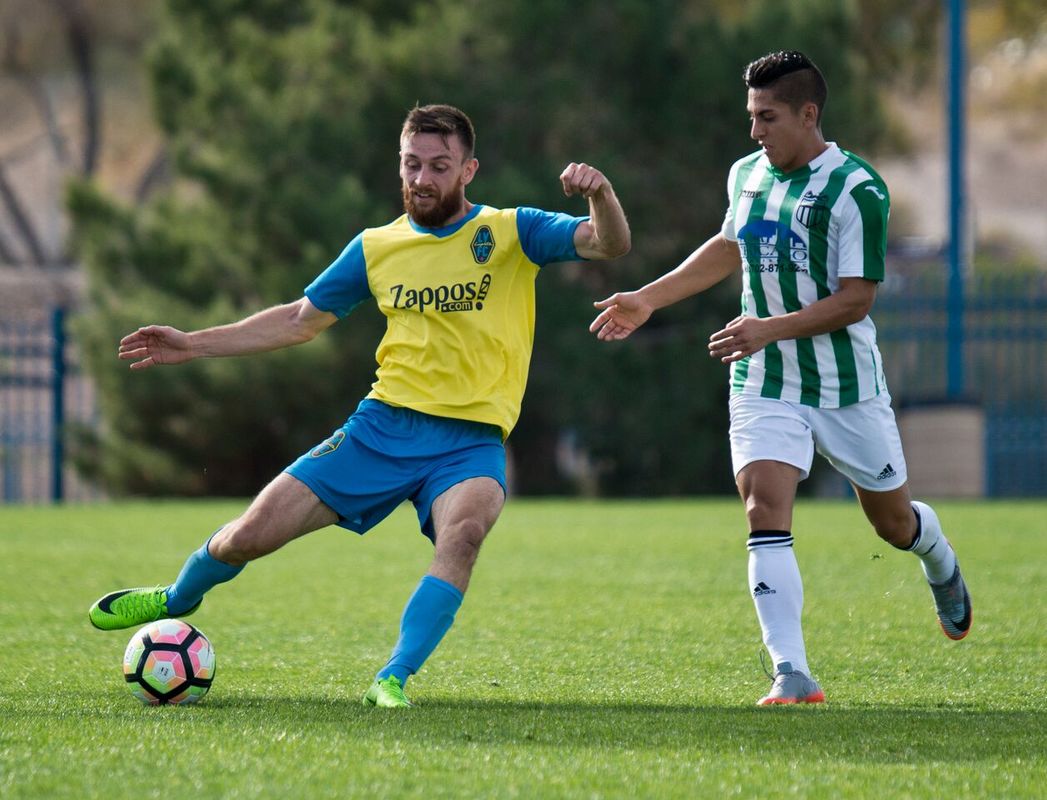
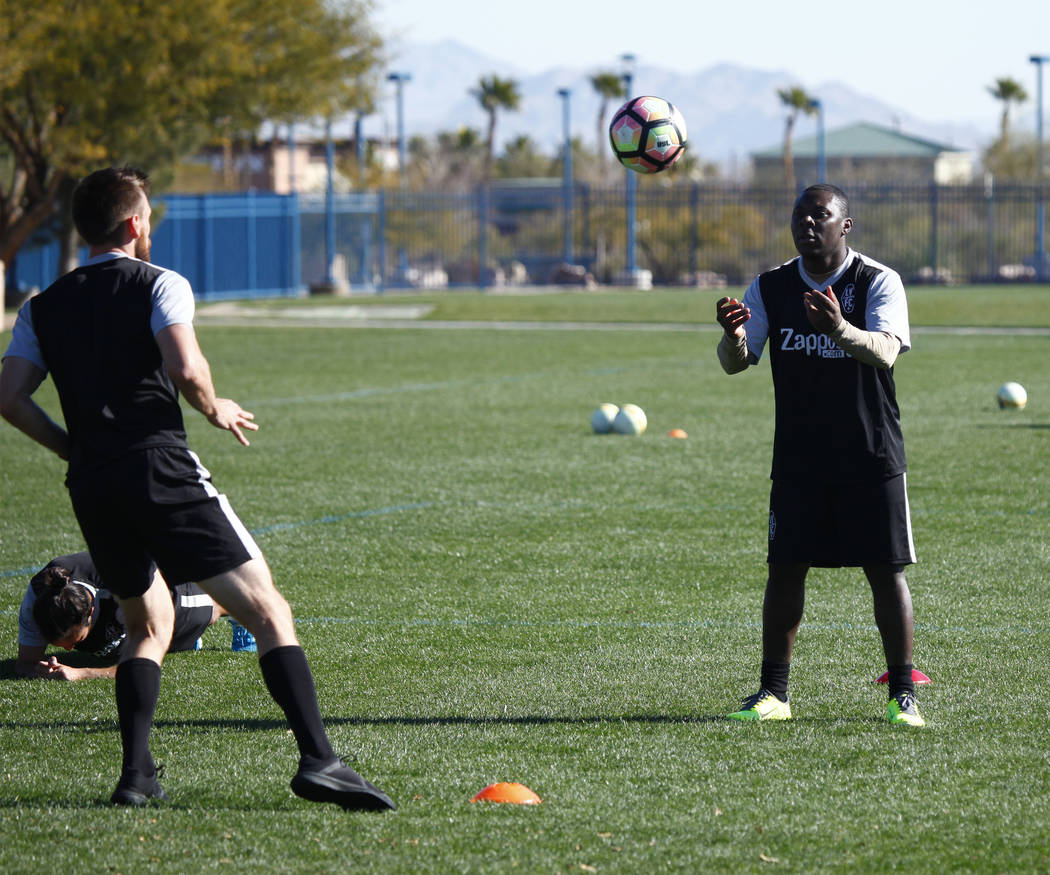

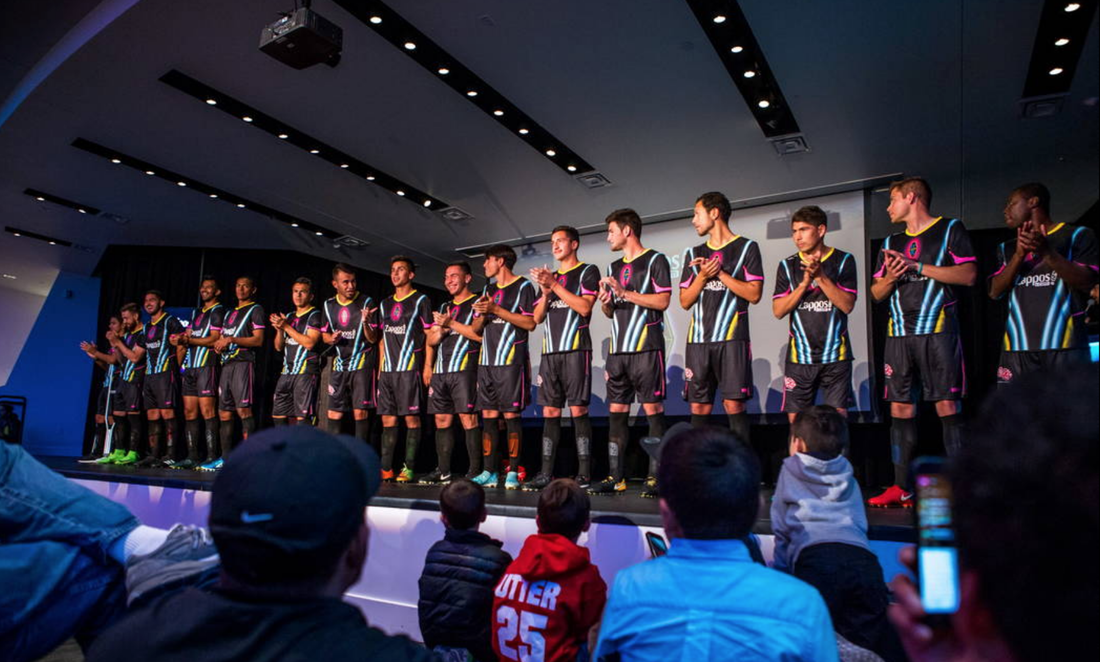
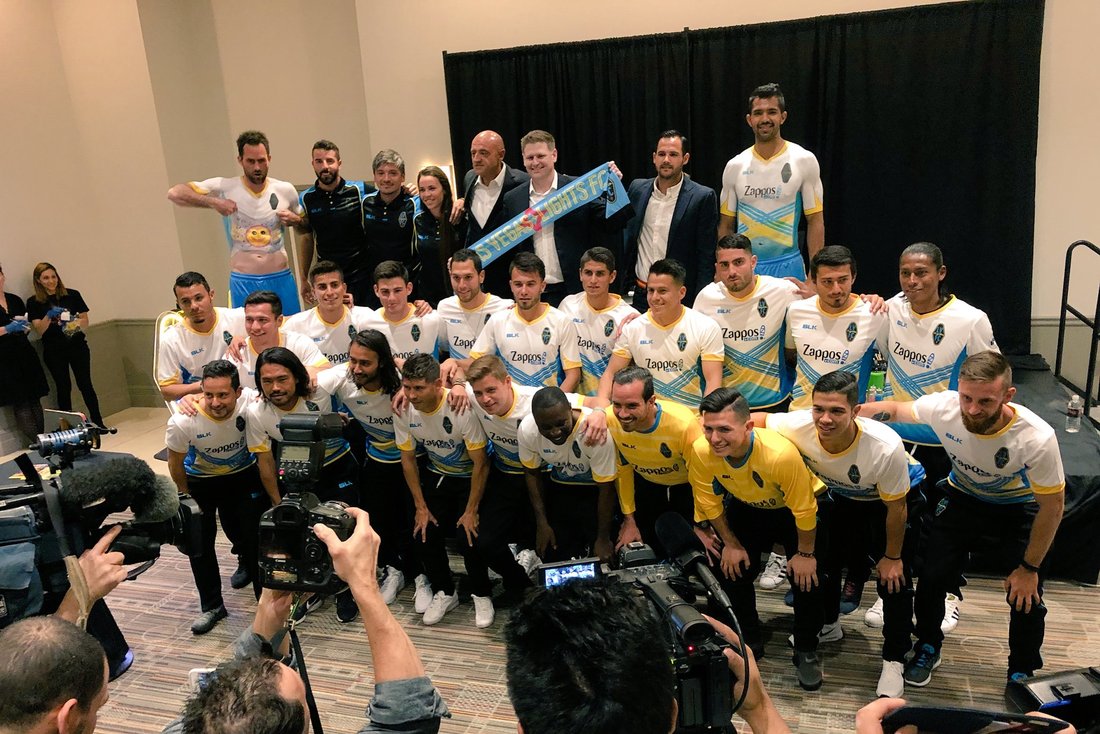
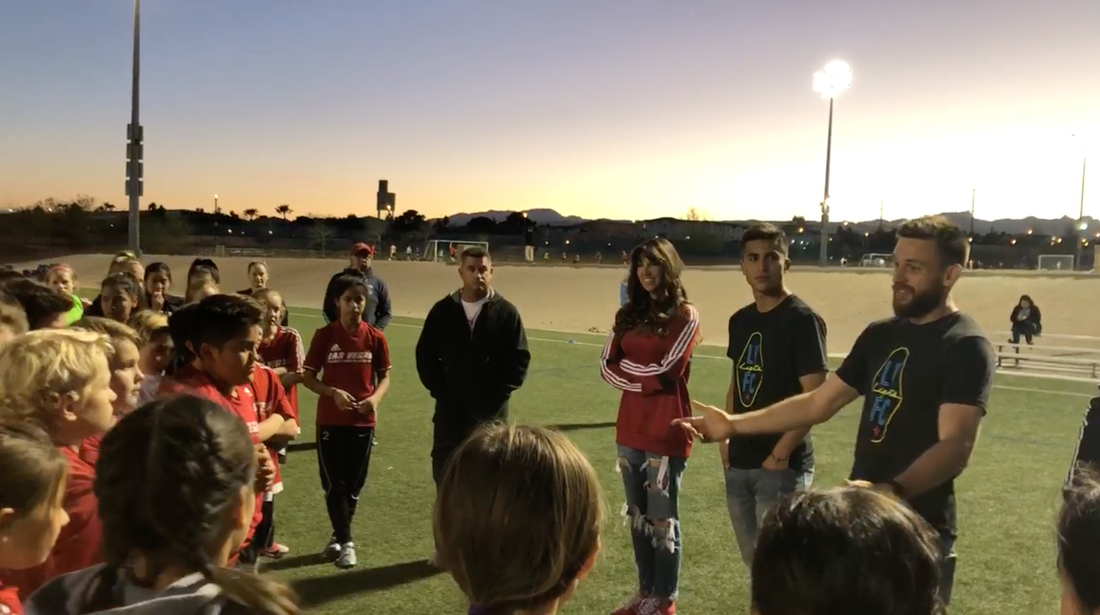
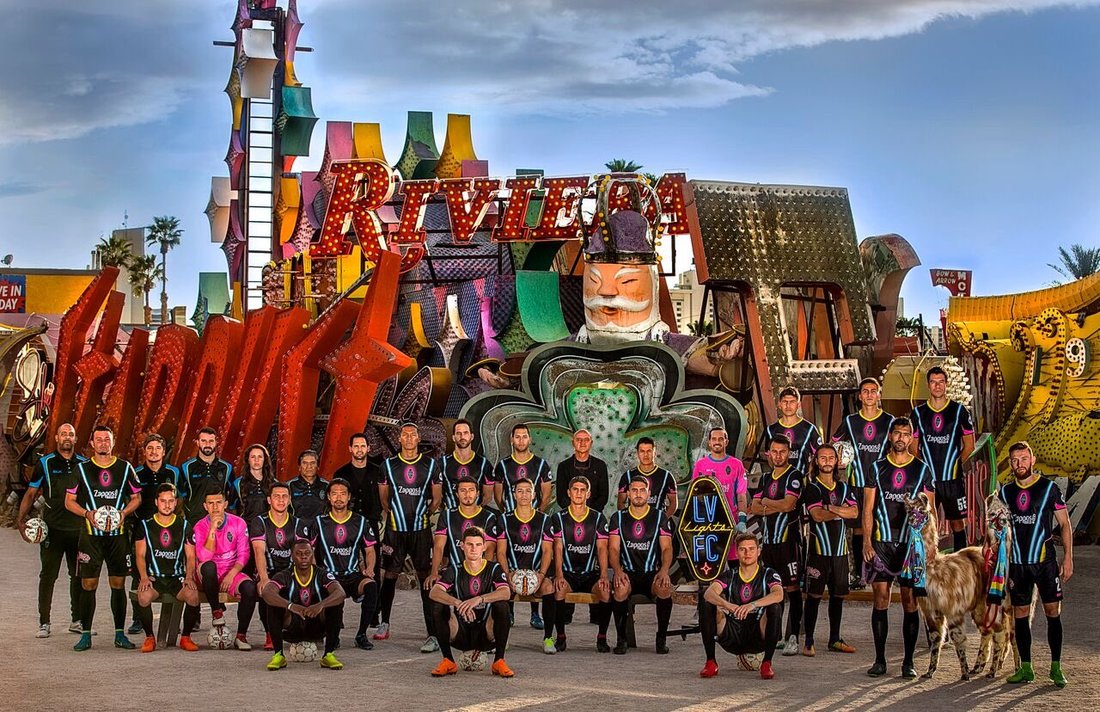
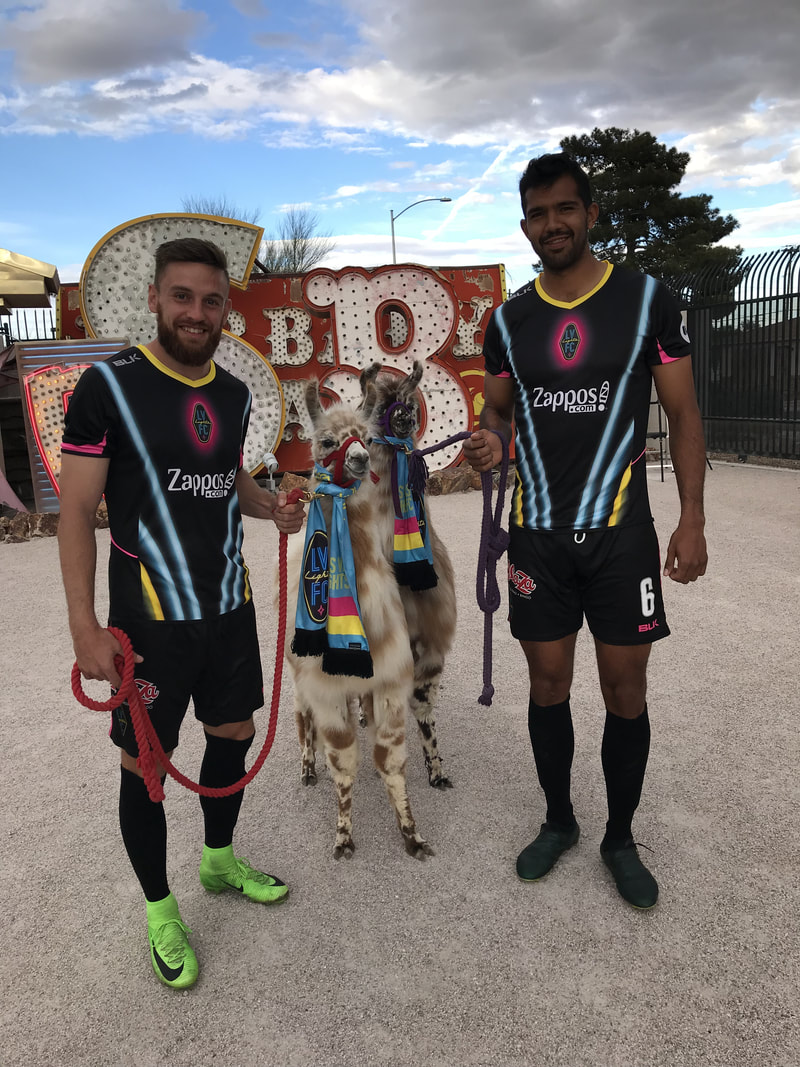
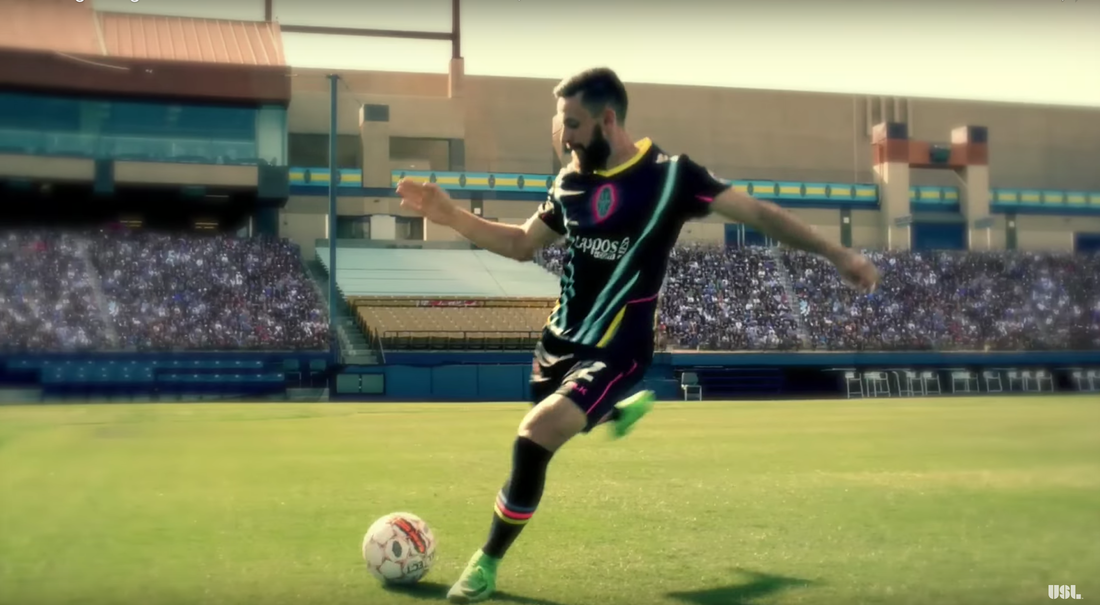
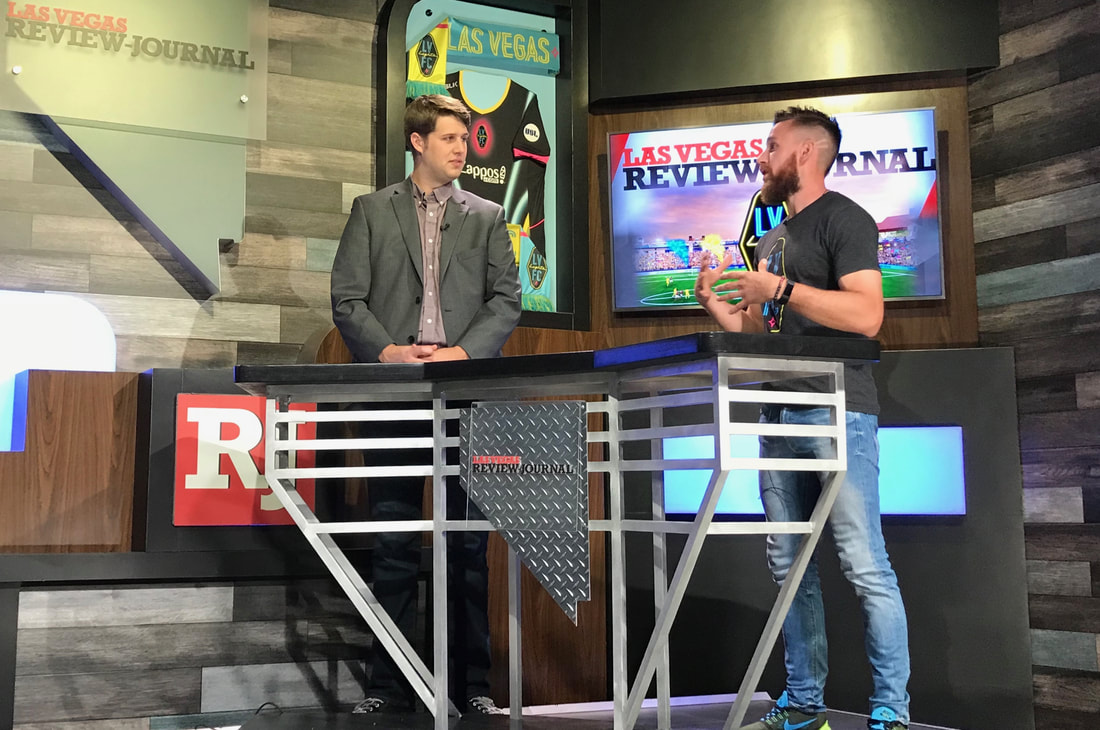
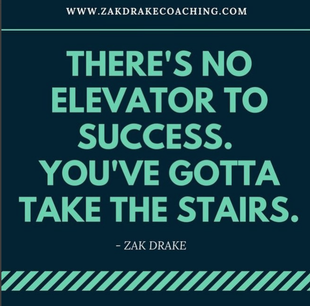
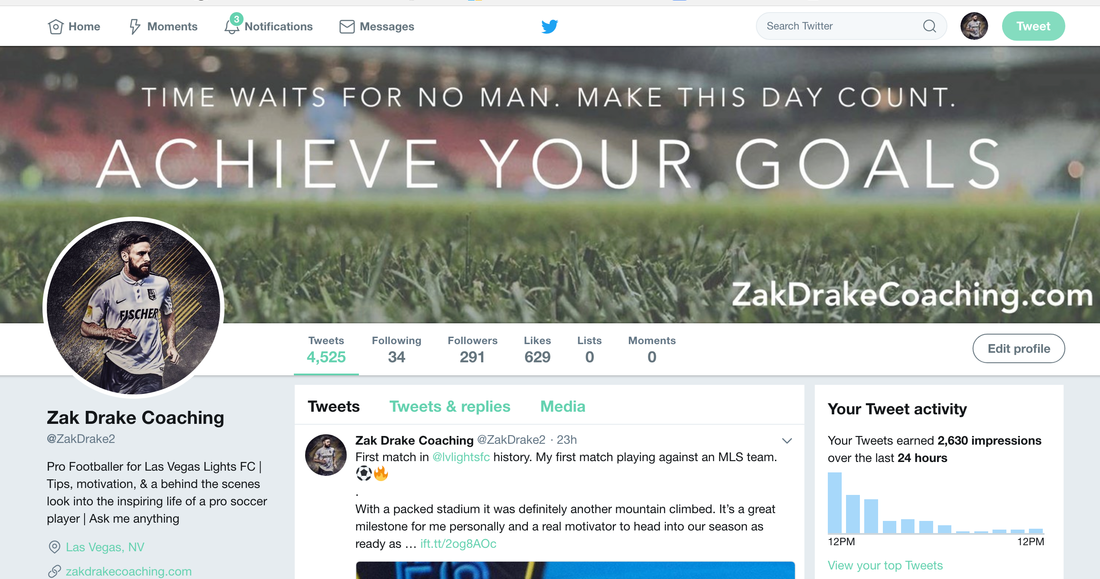
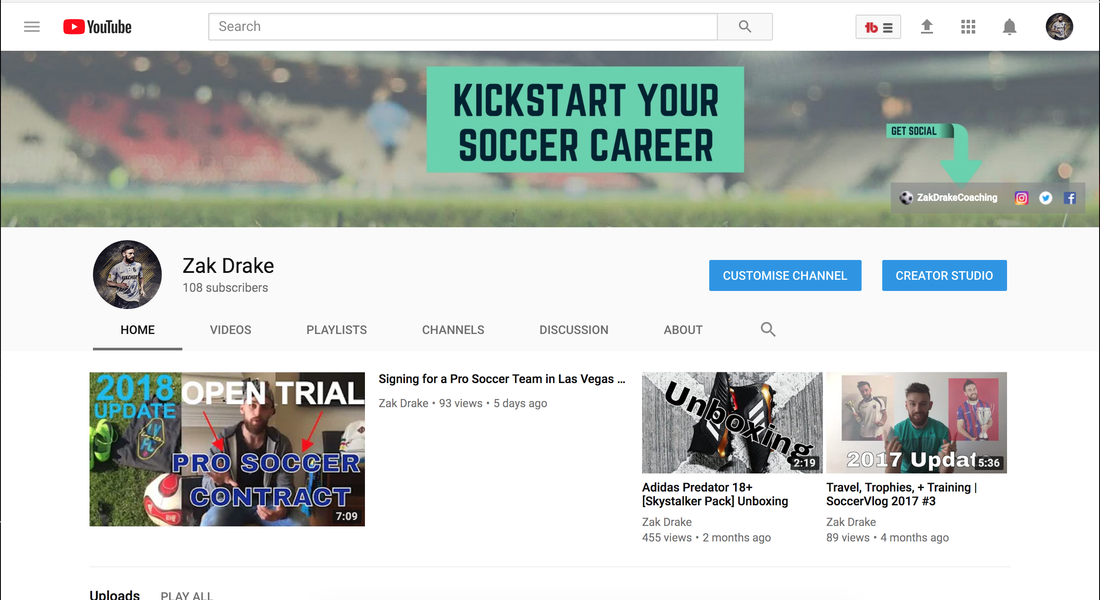


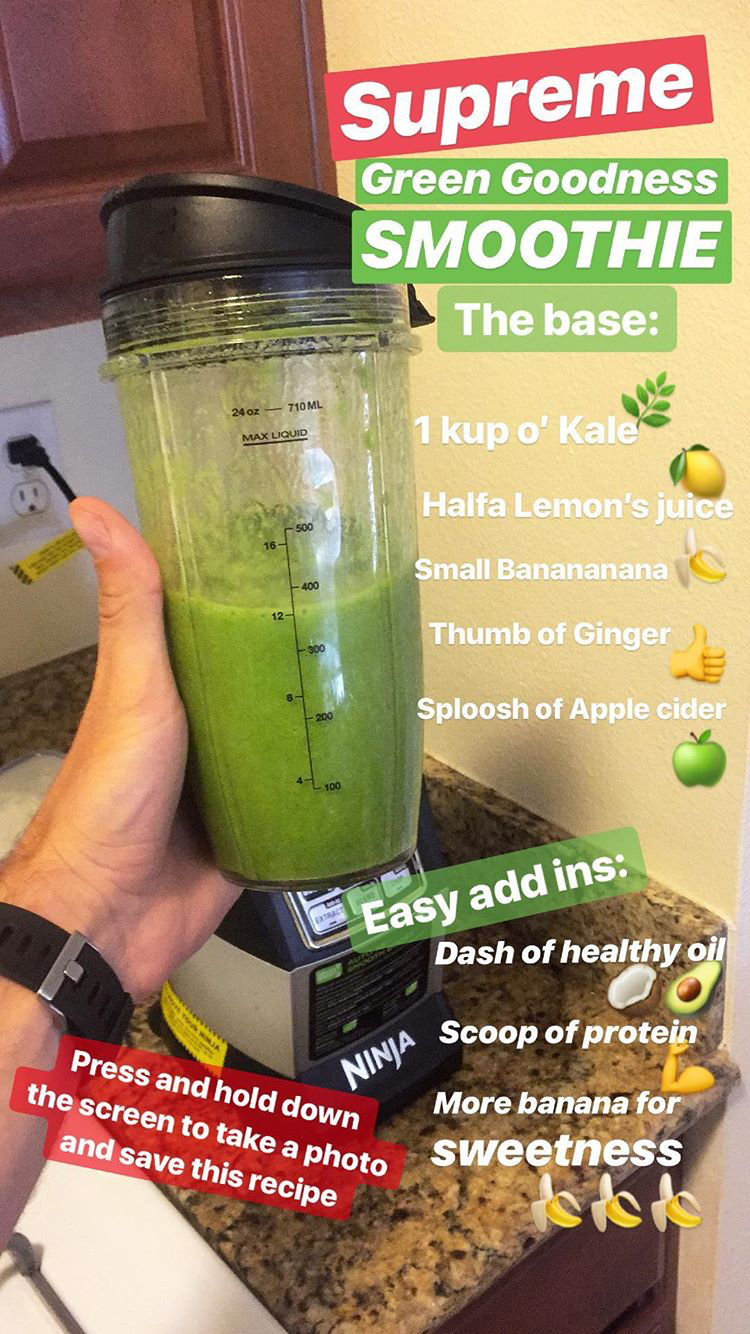

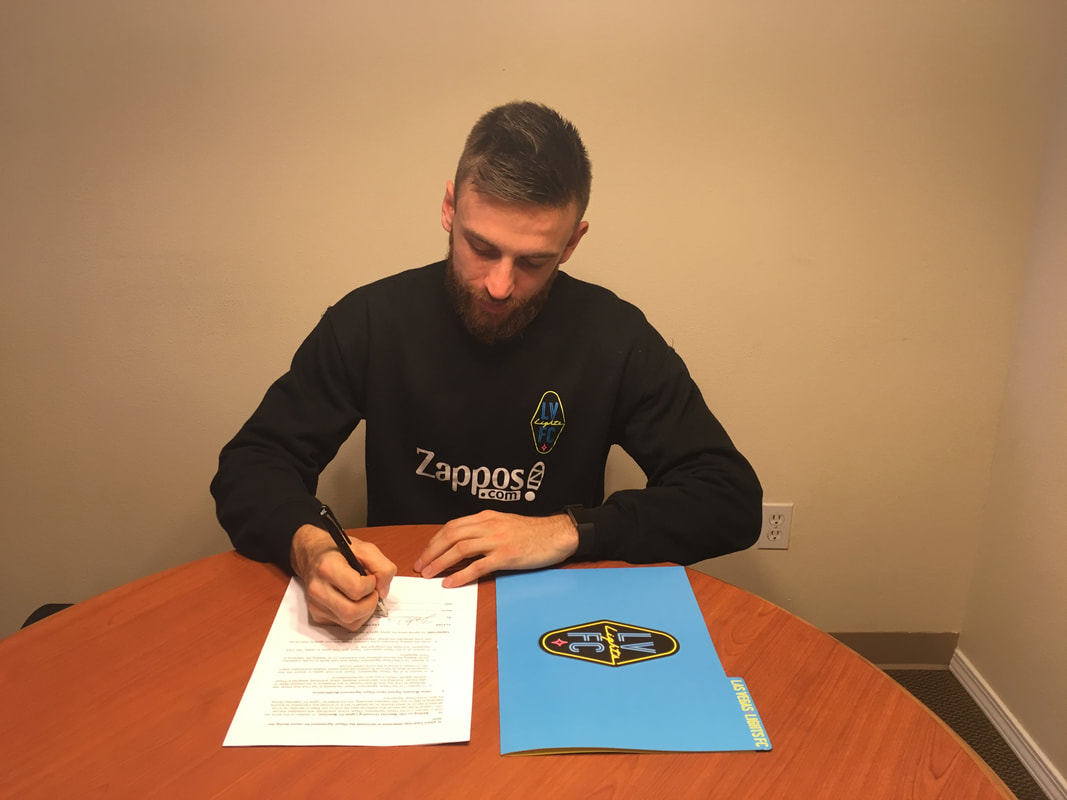
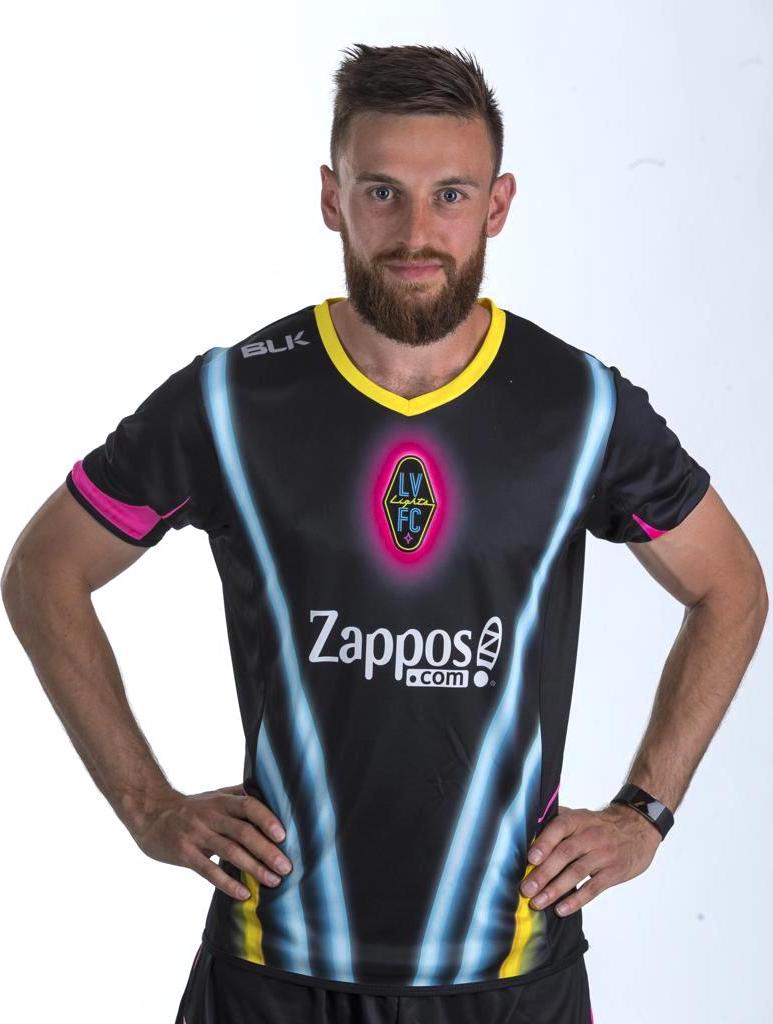
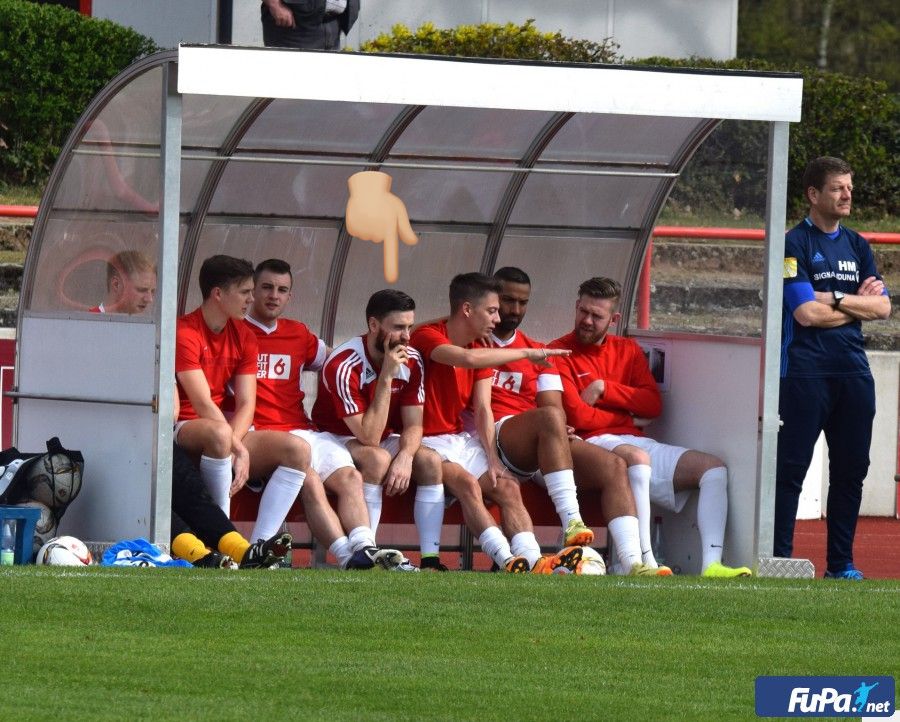
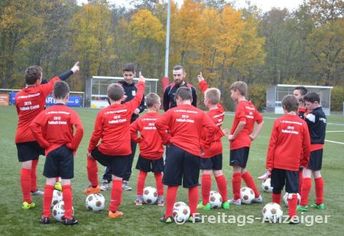

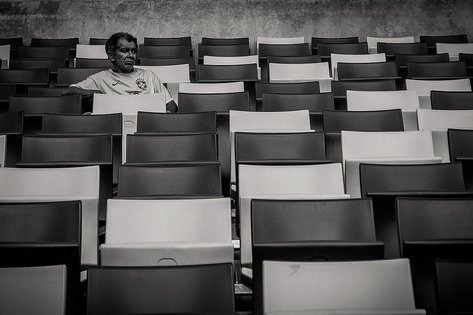
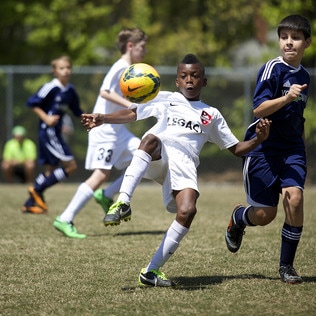
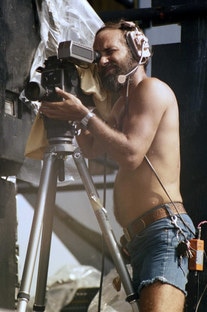
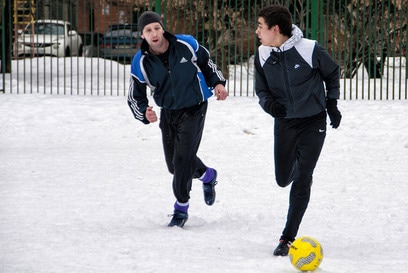

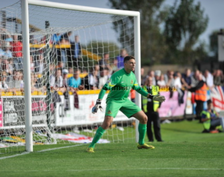
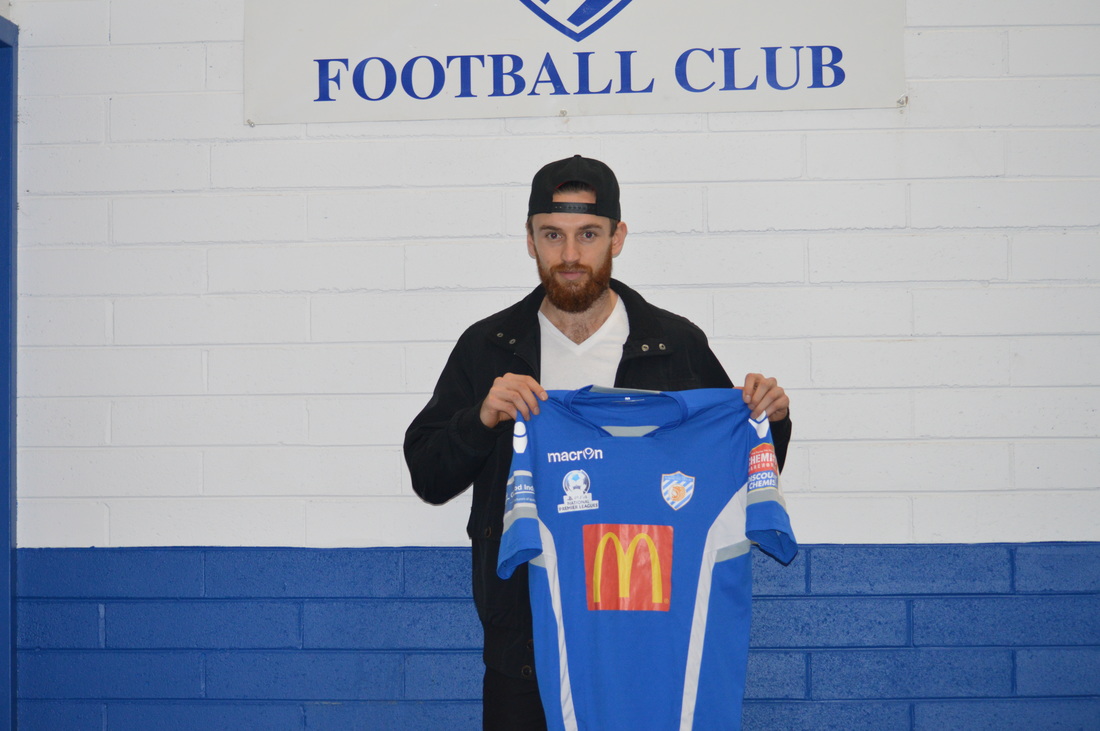

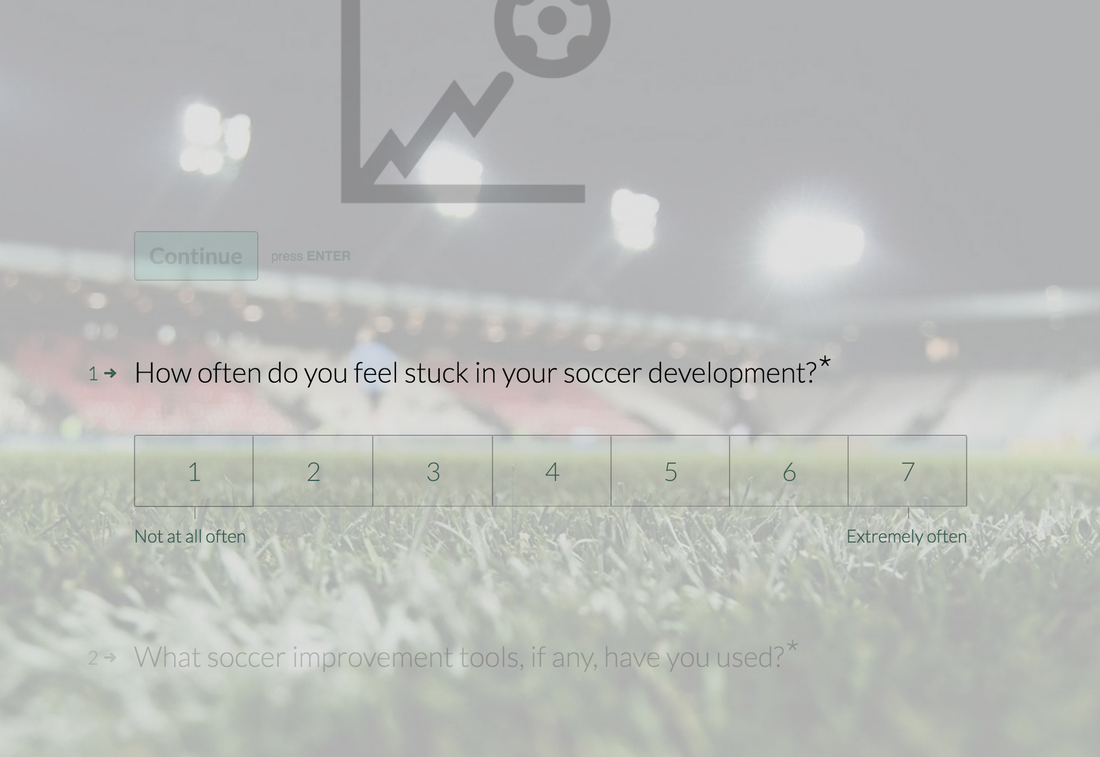
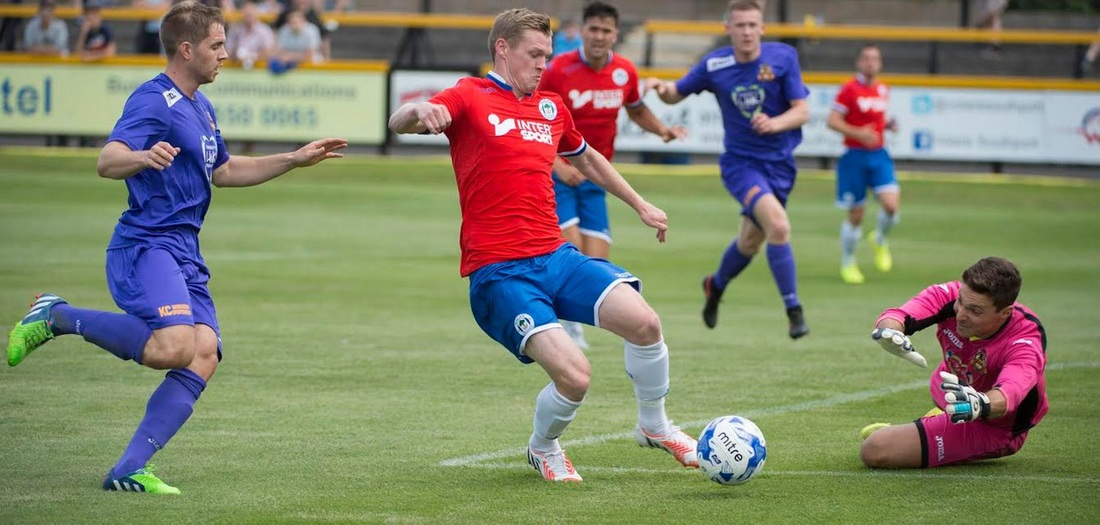
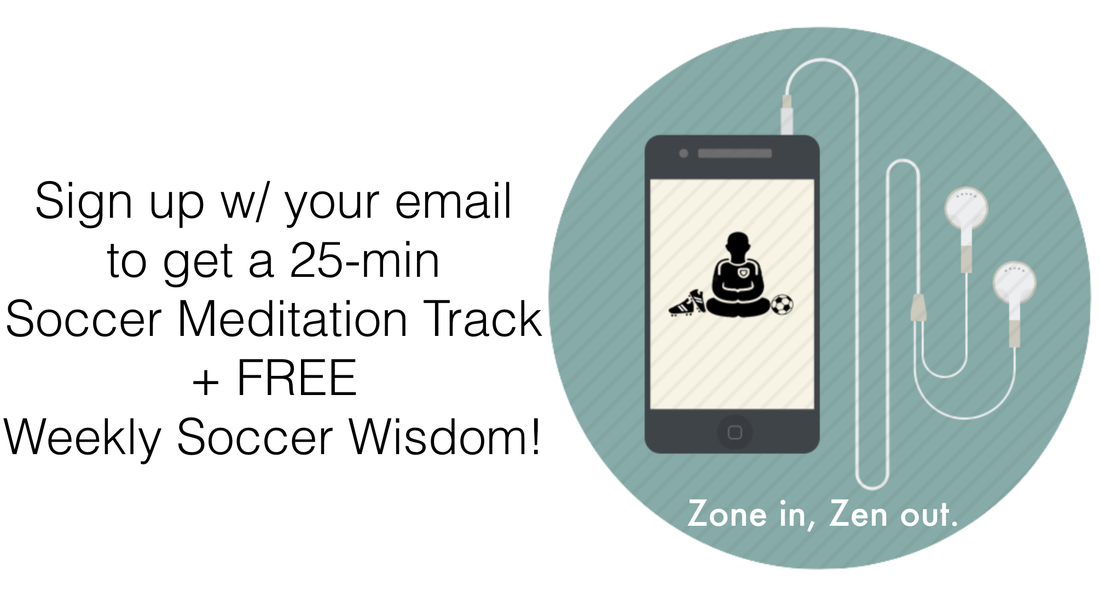

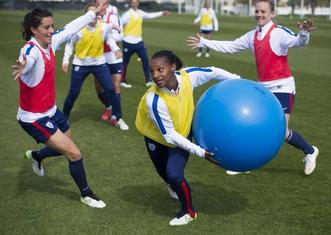


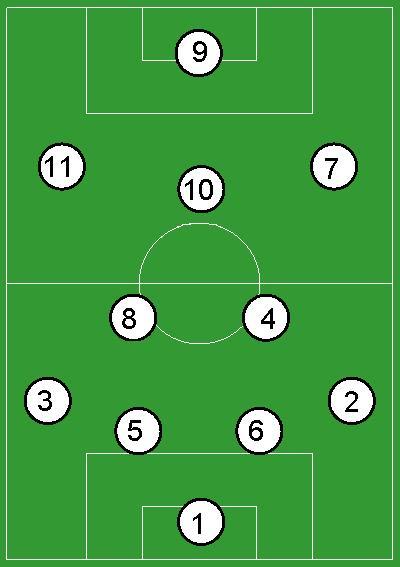





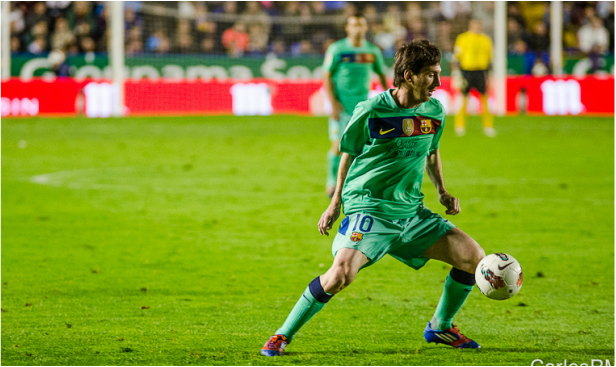
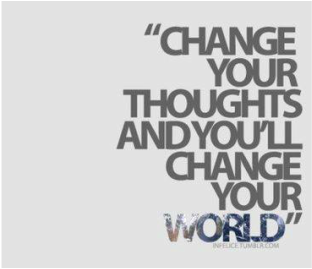
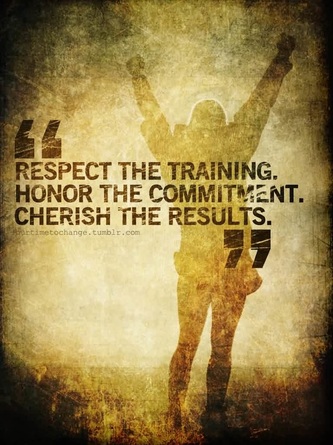
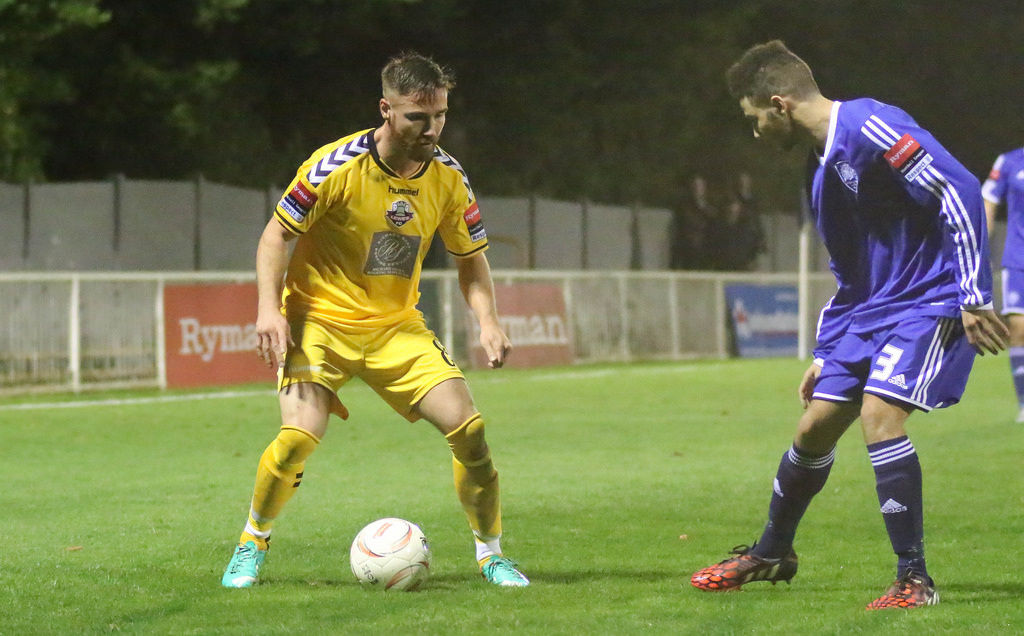
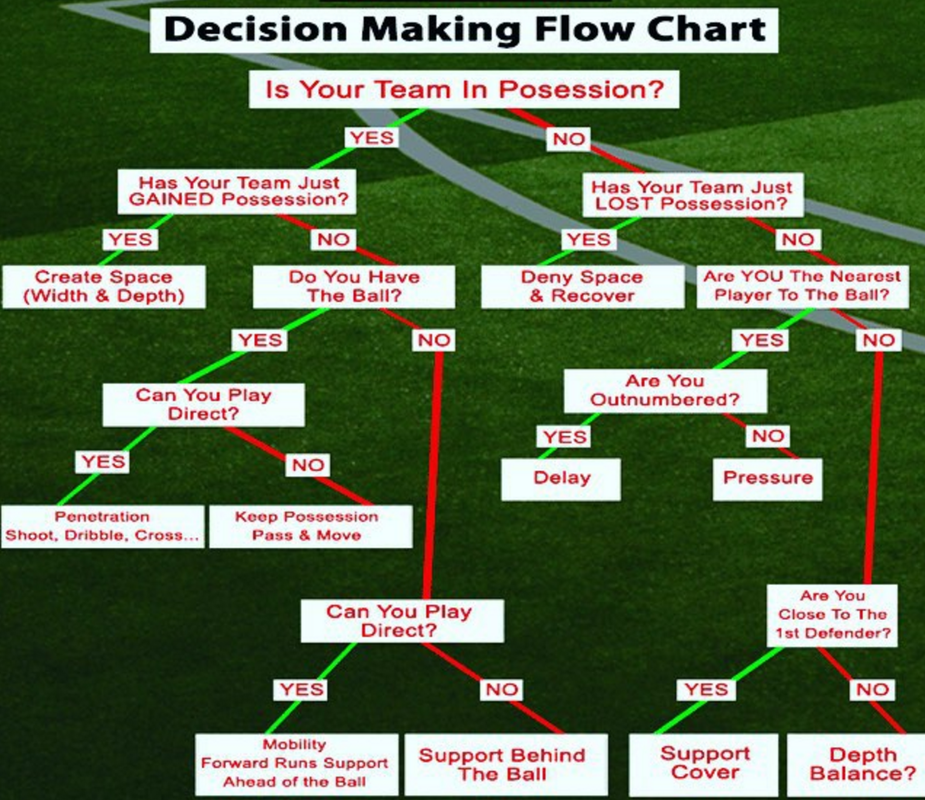
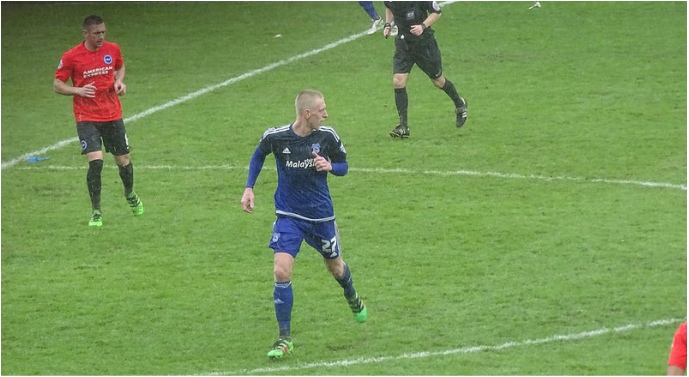
 RSS Feed
RSS Feed